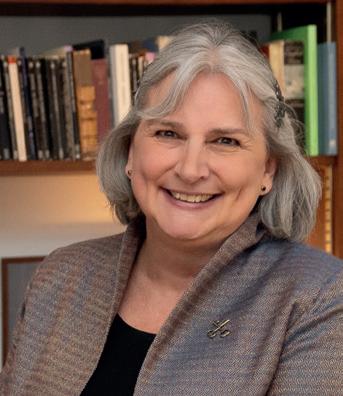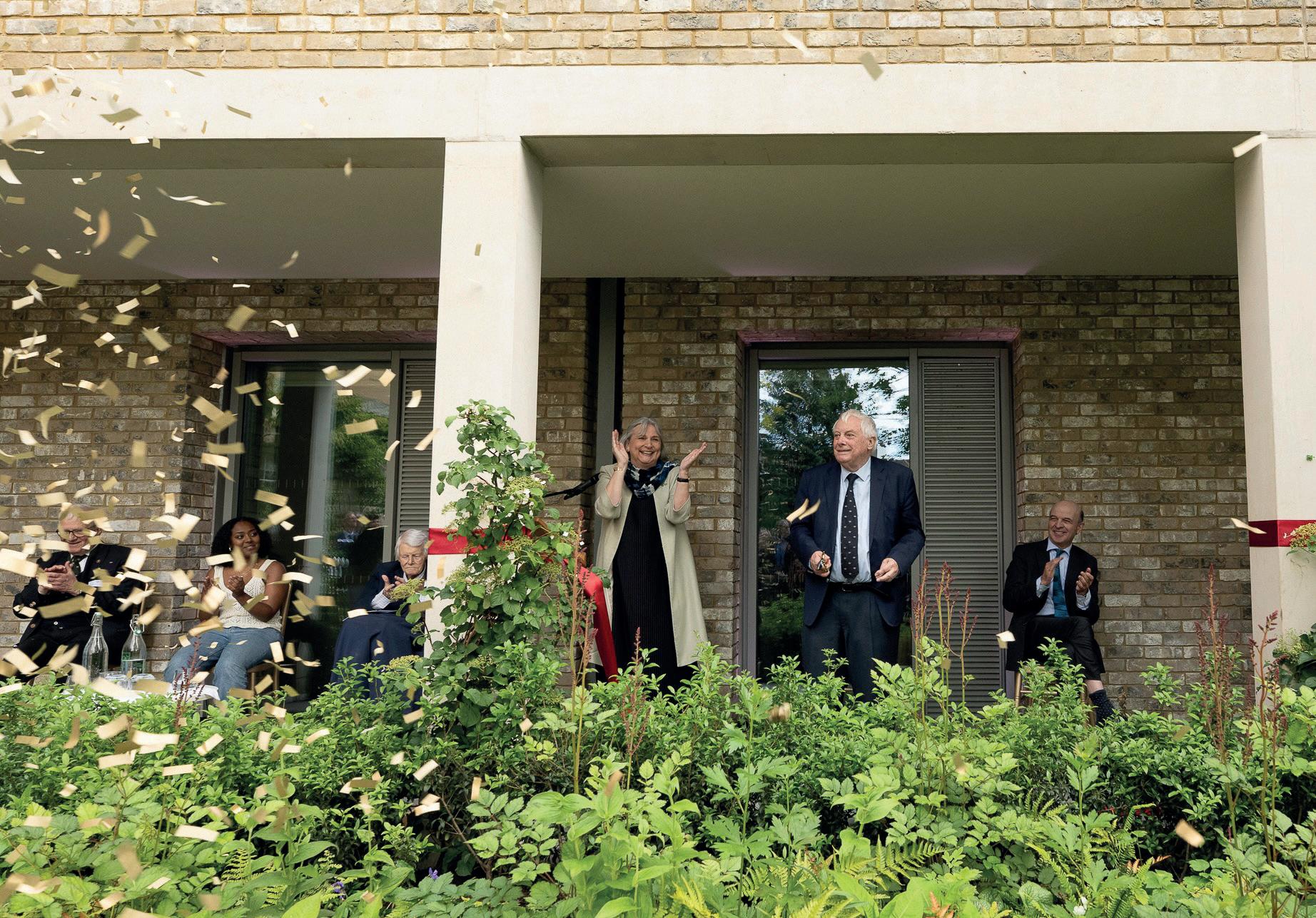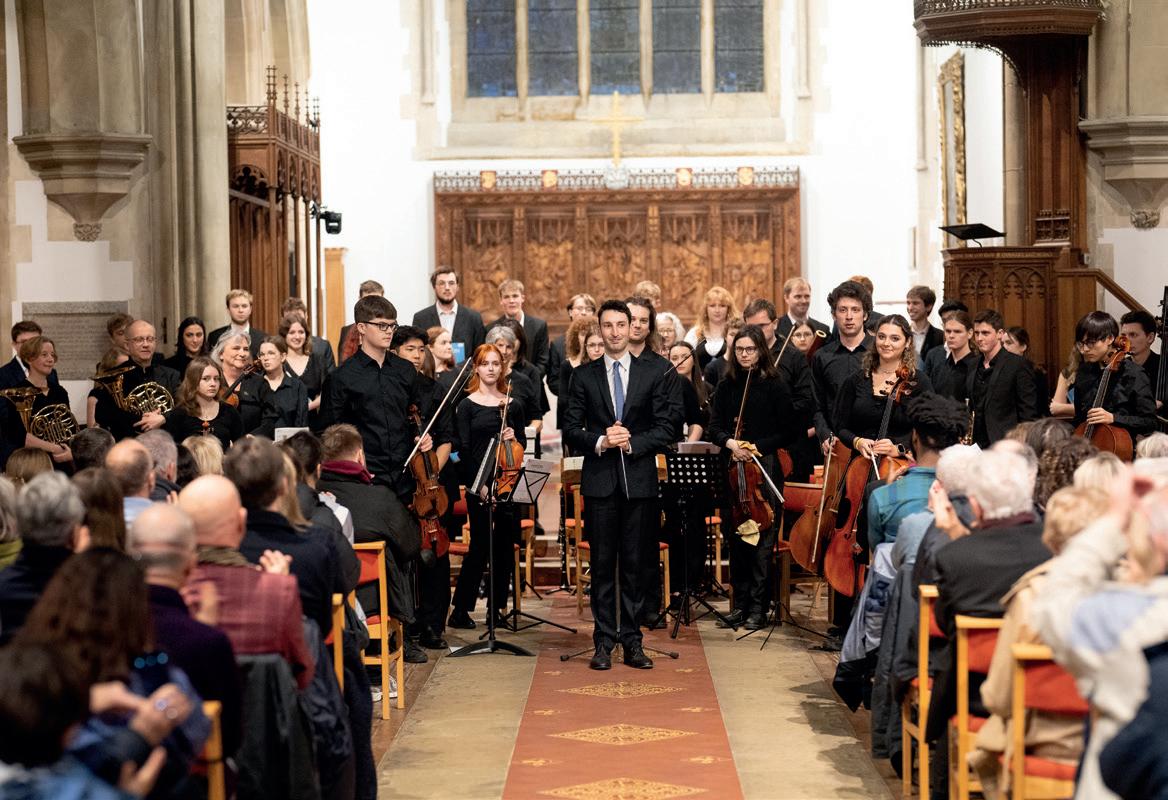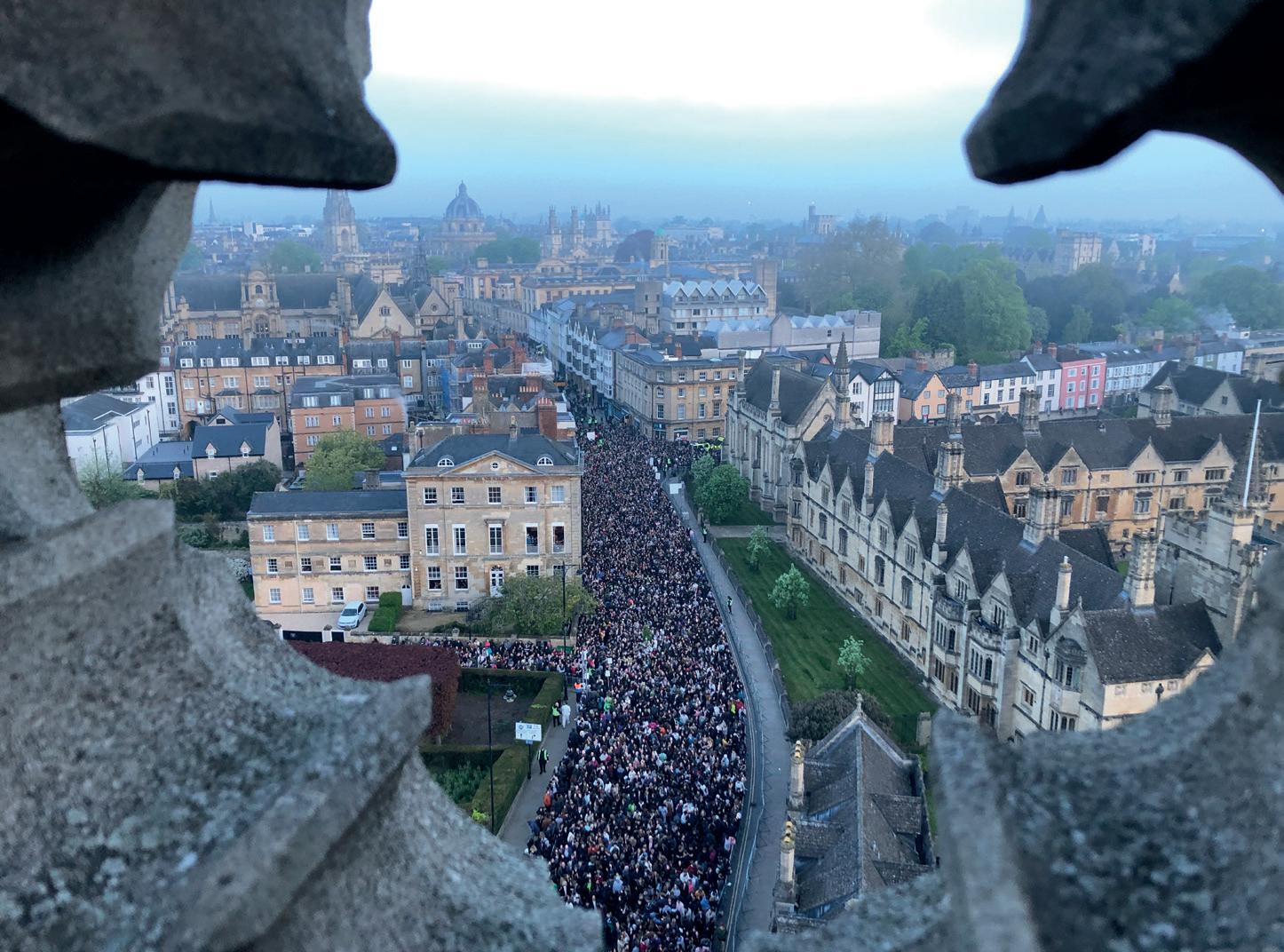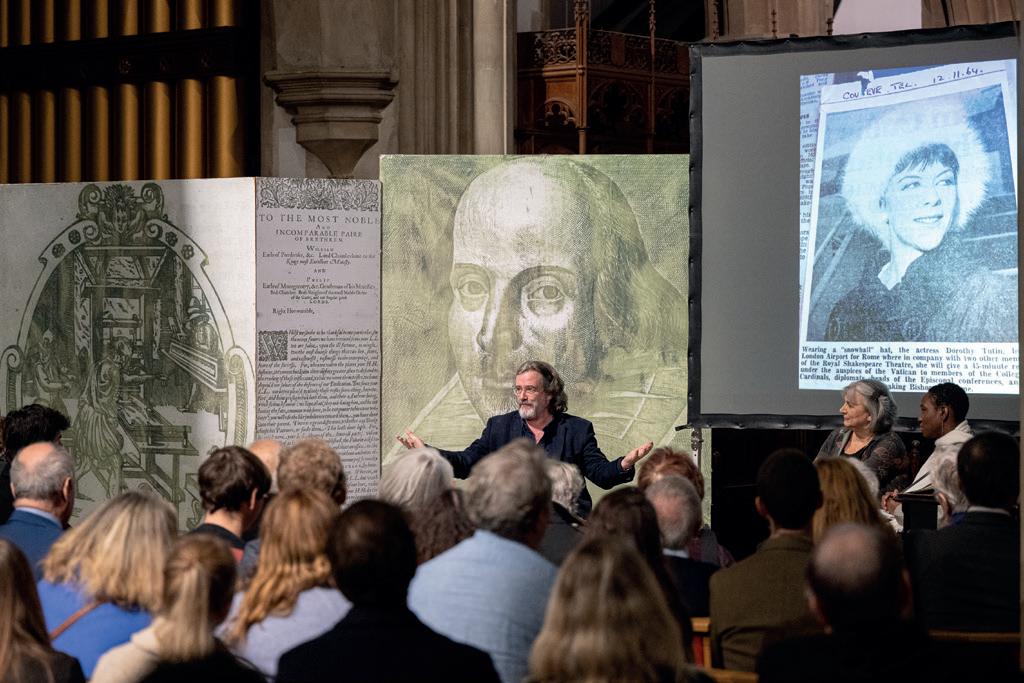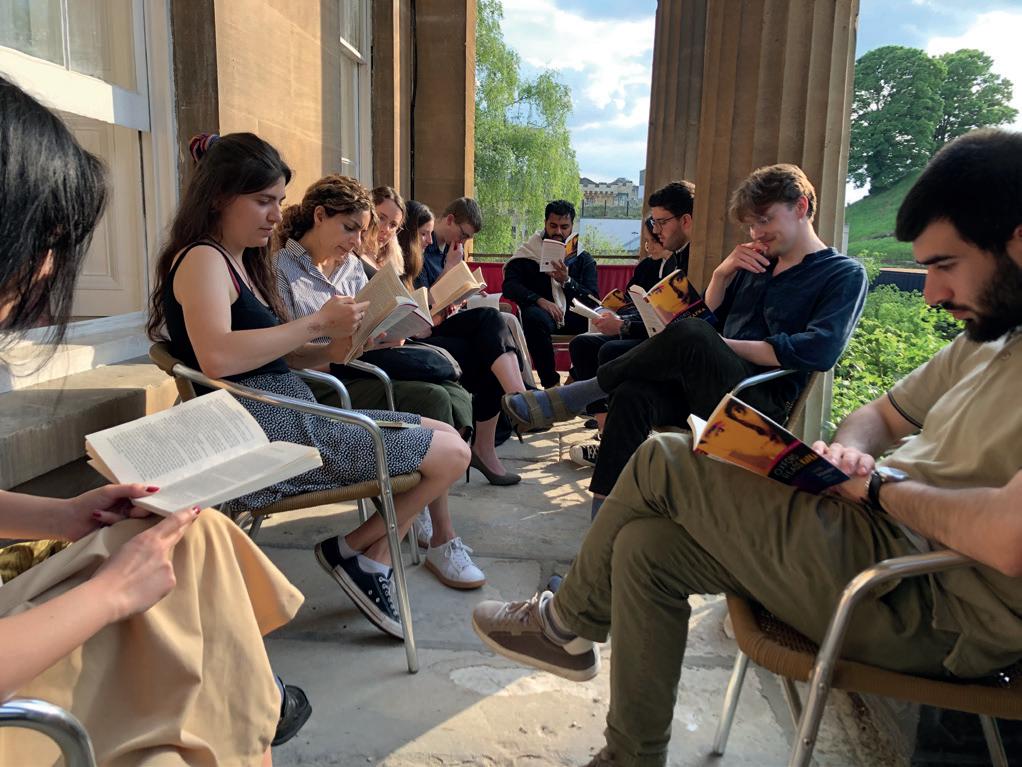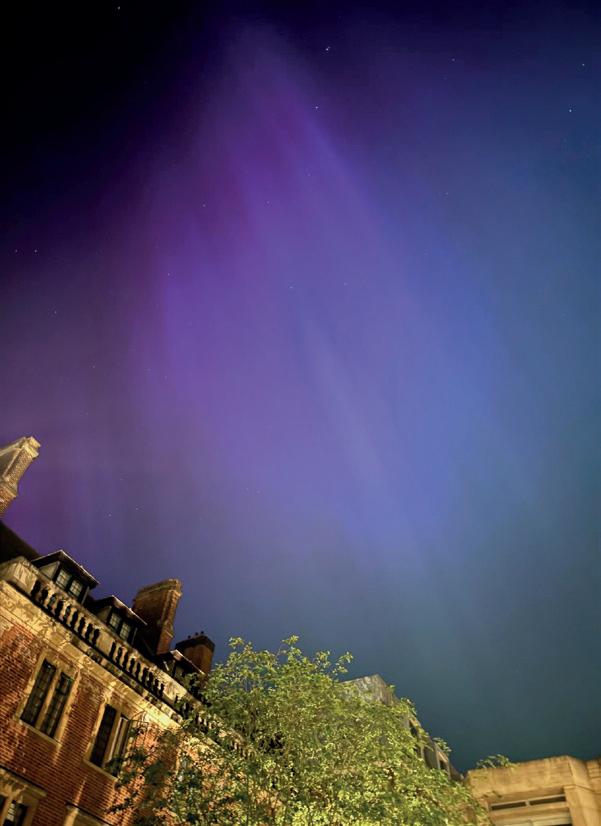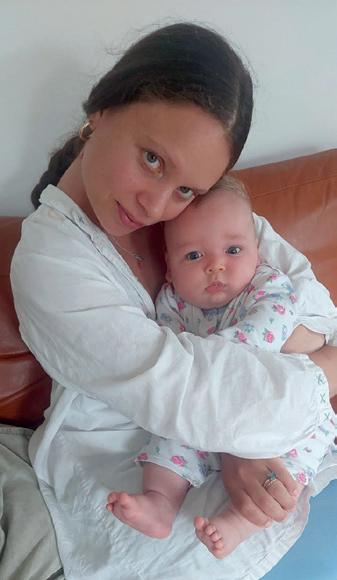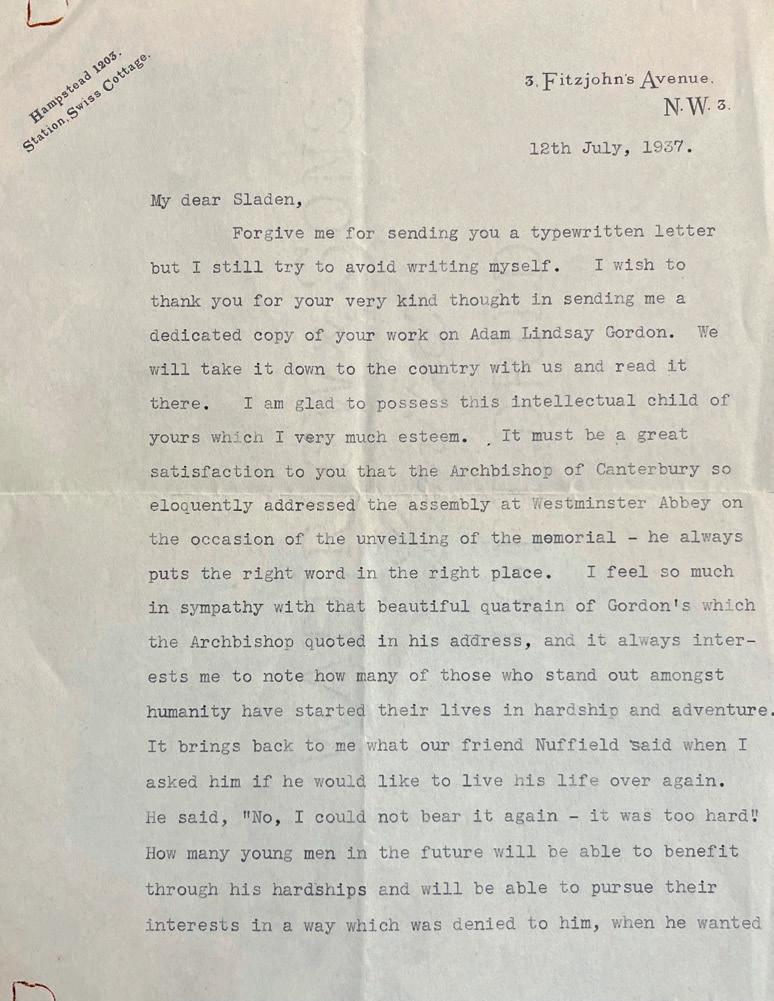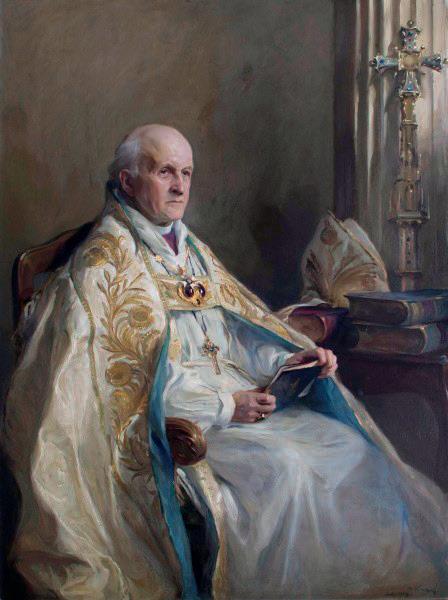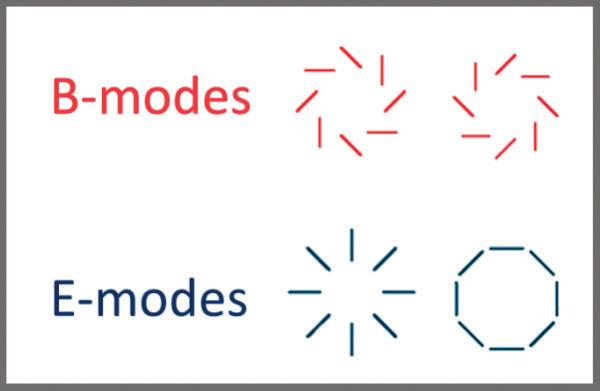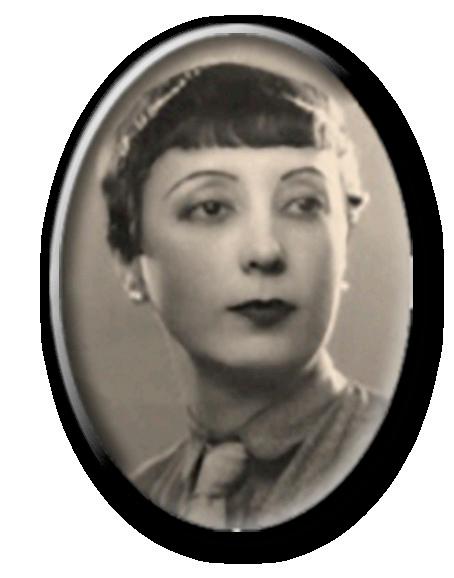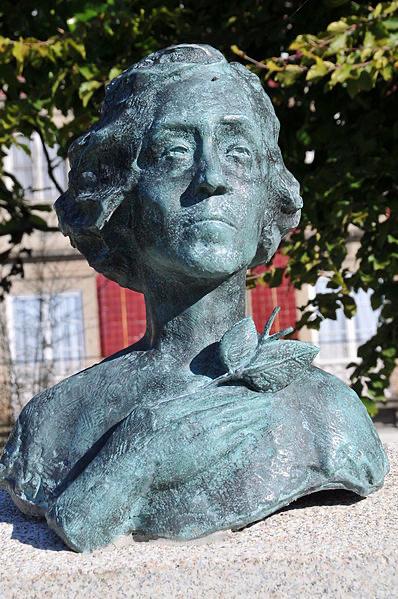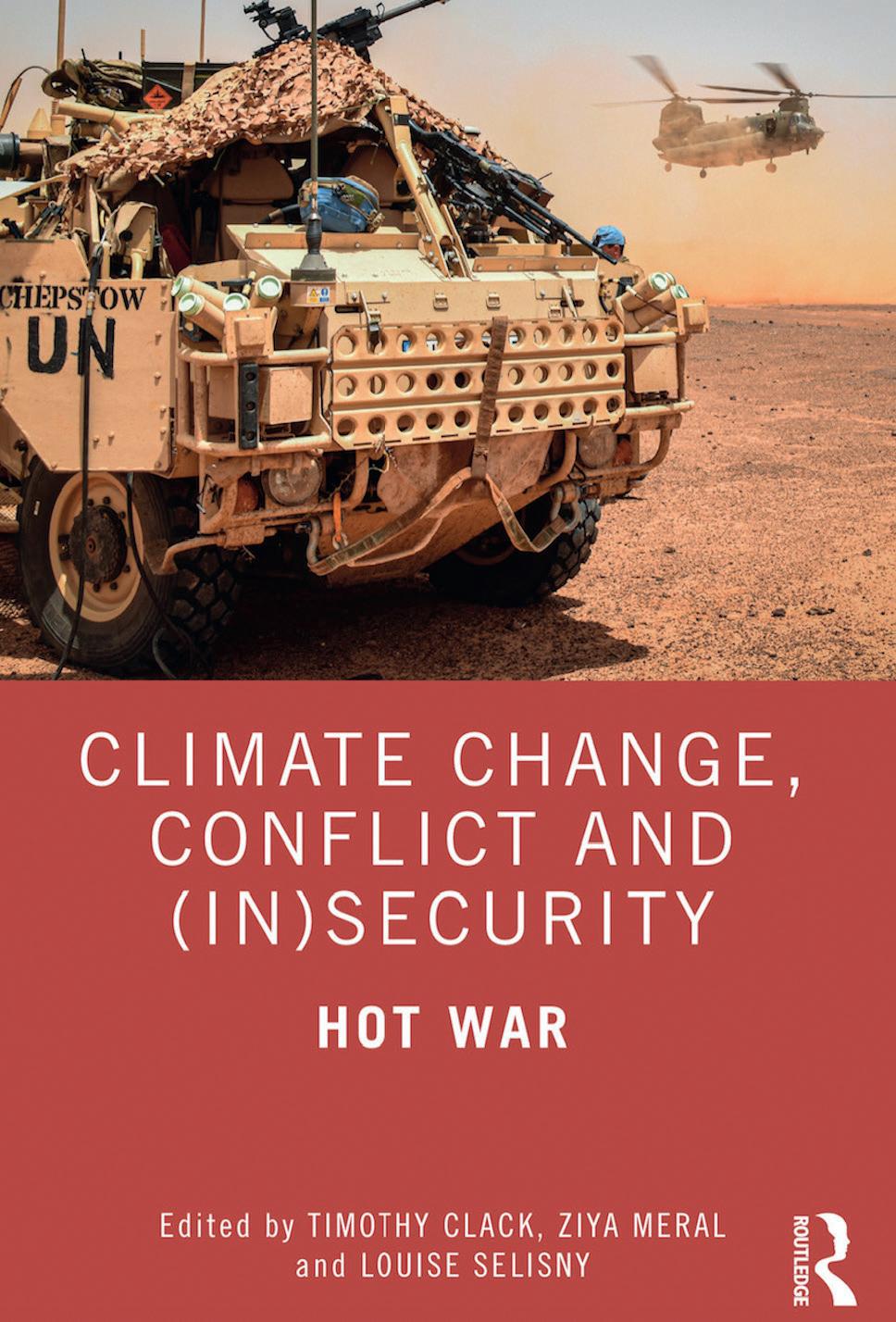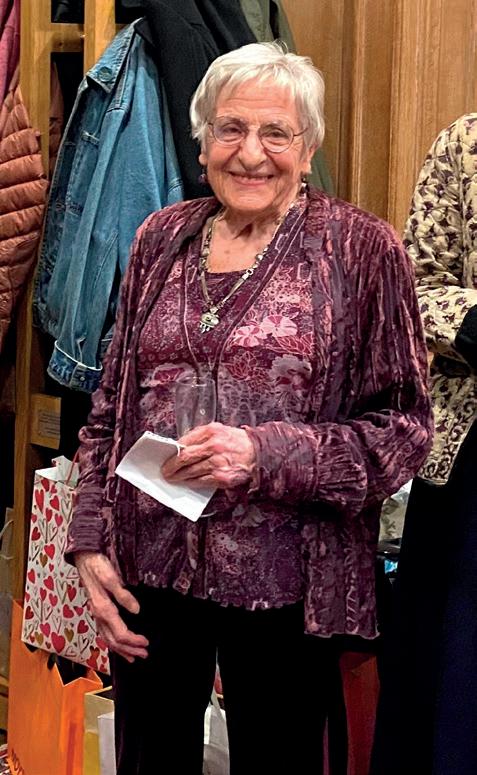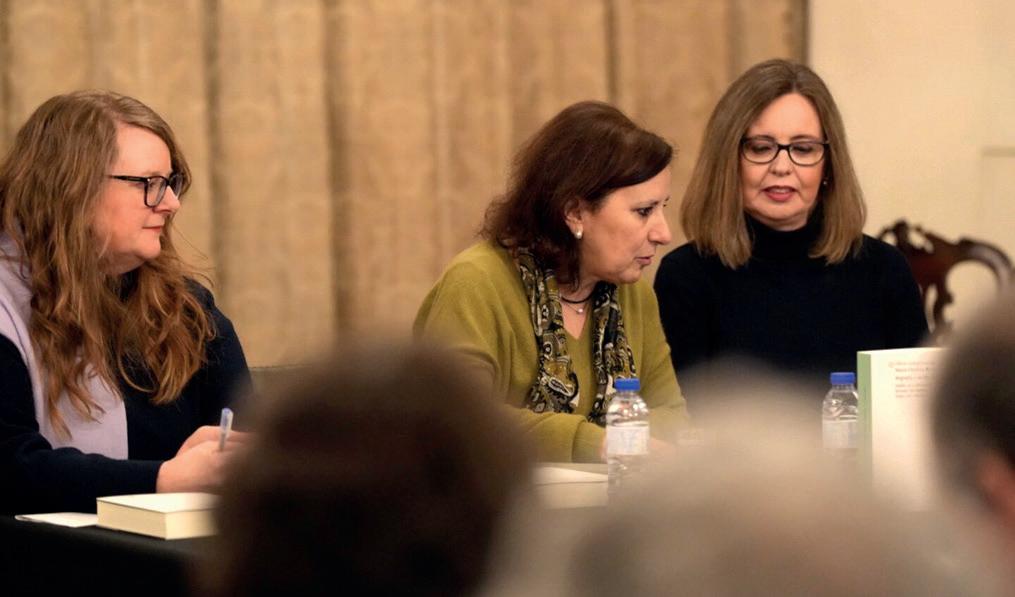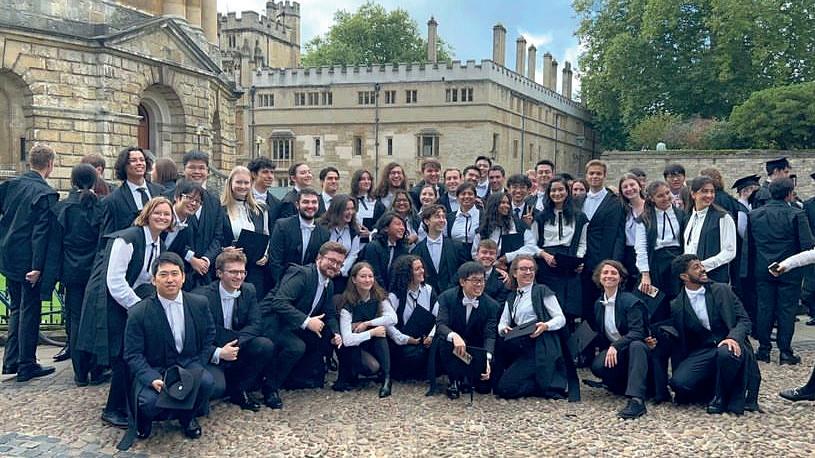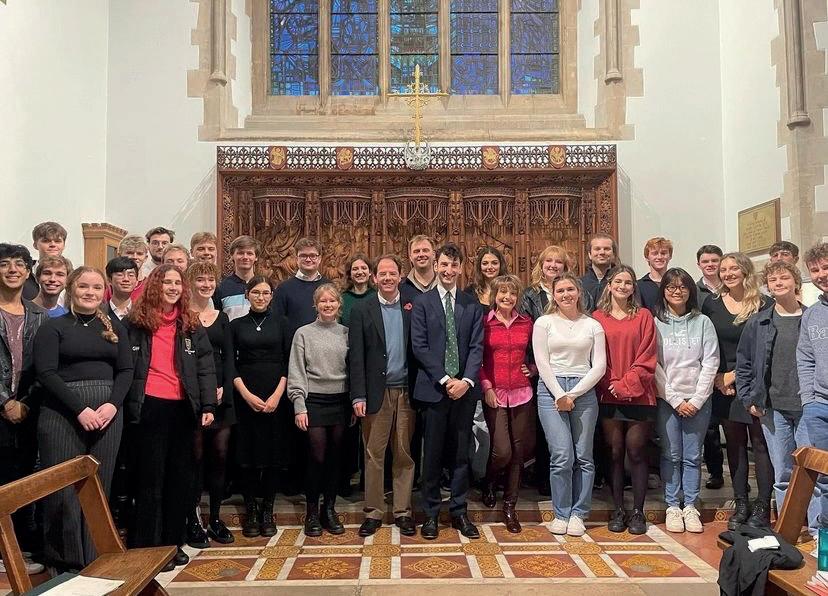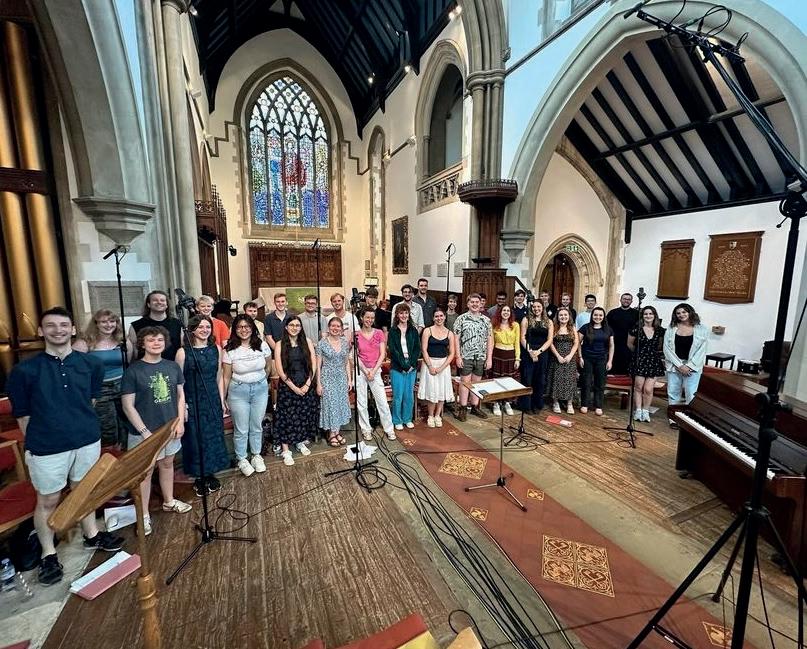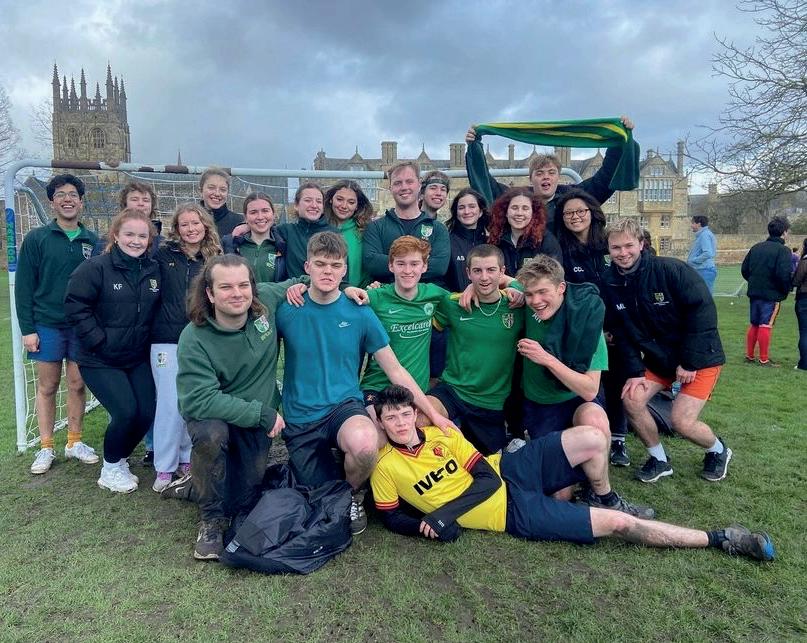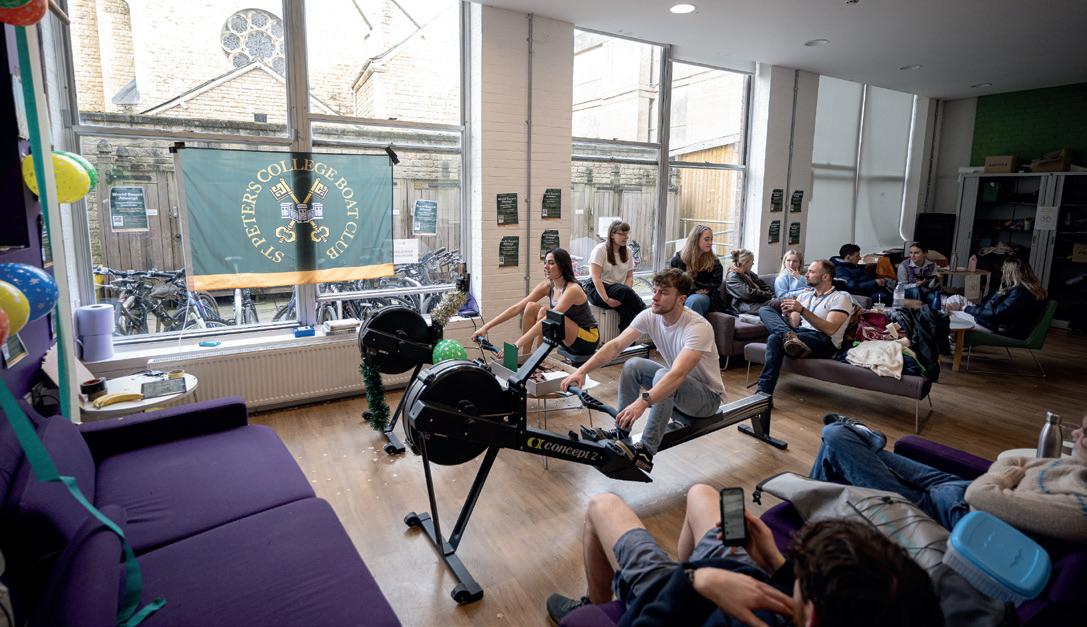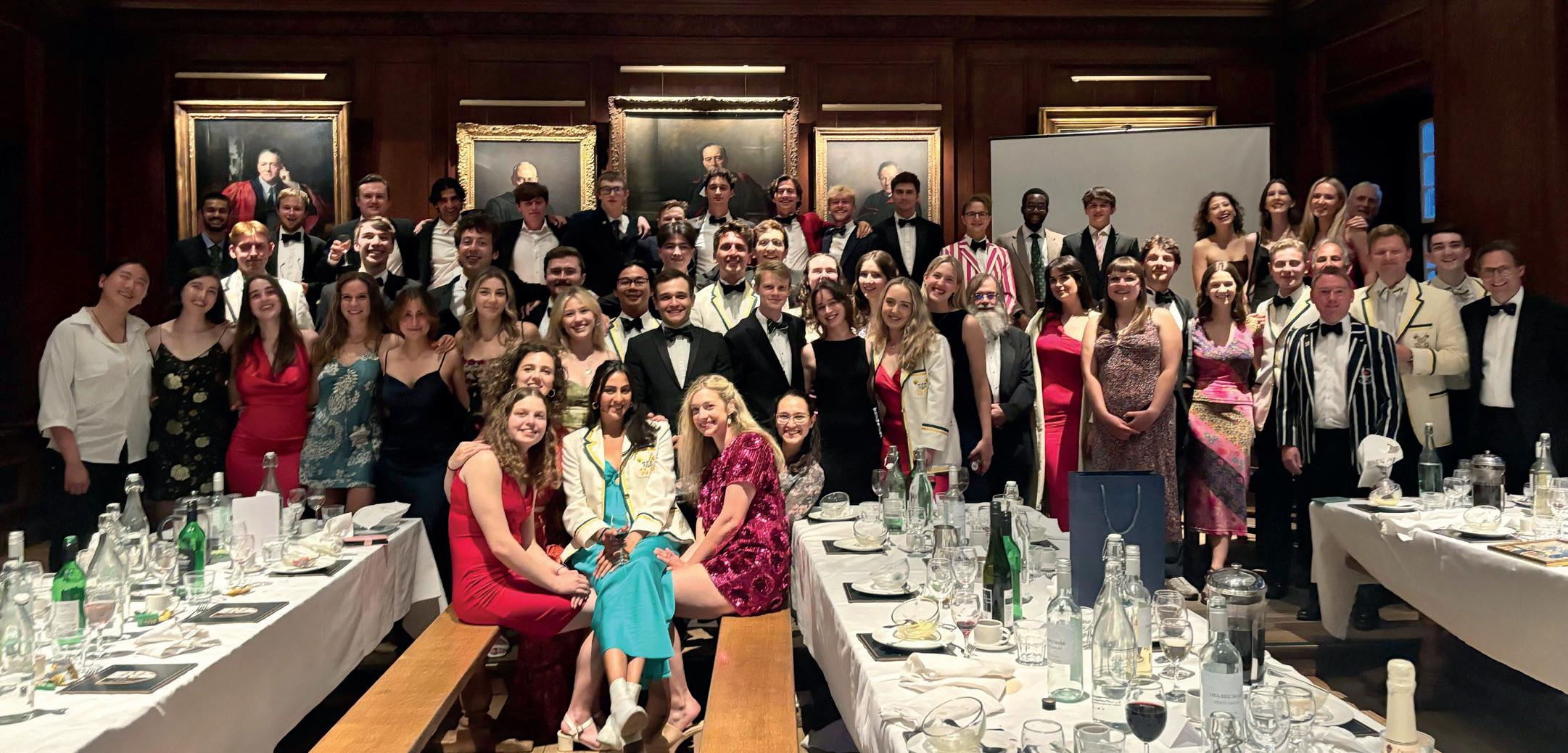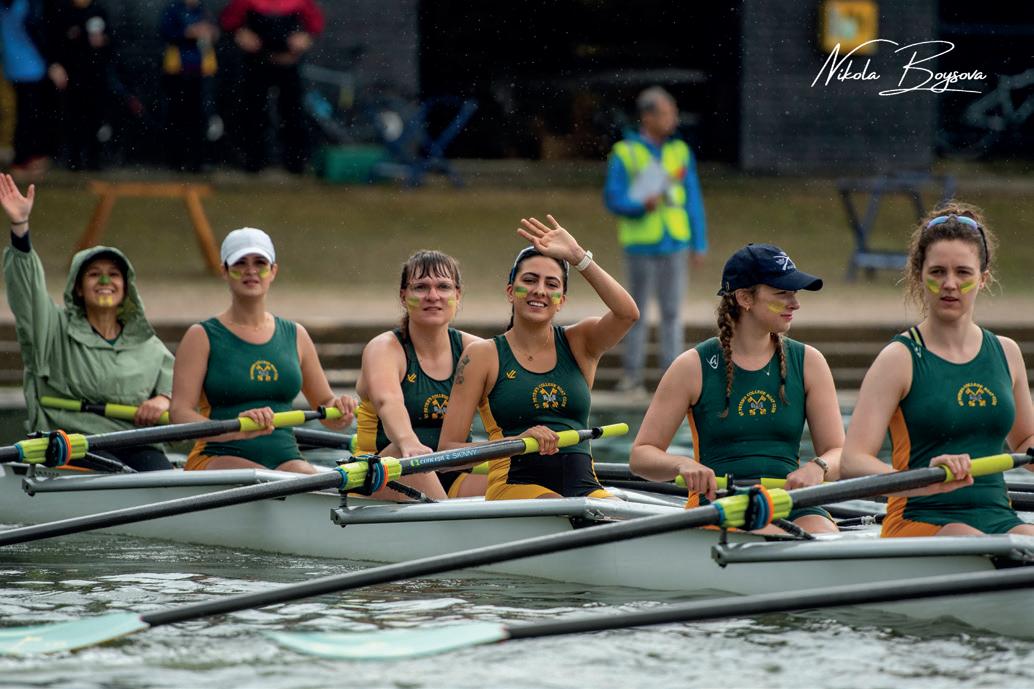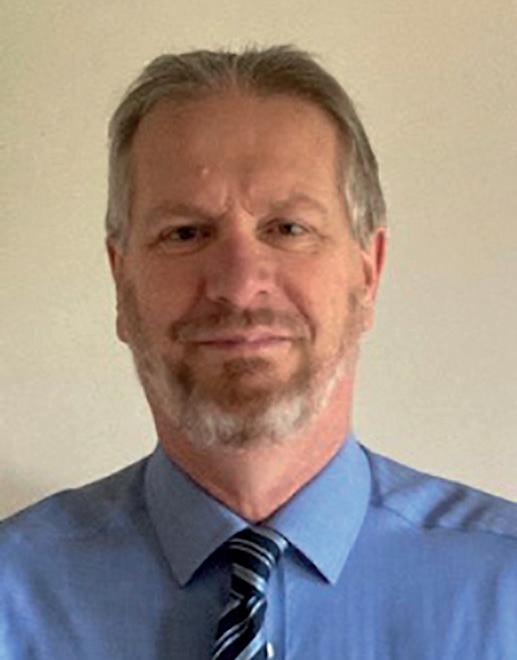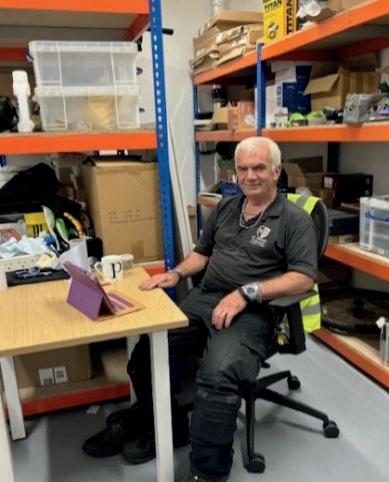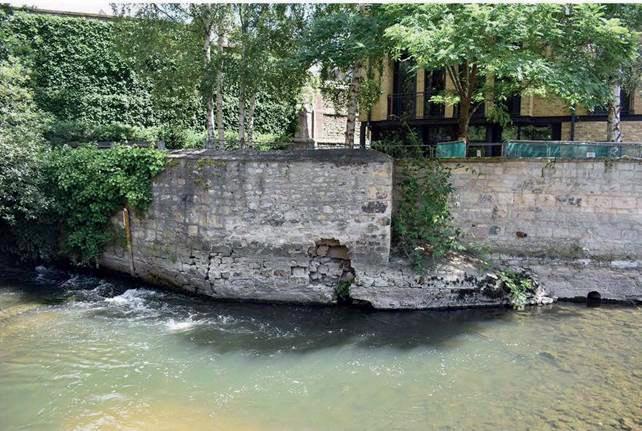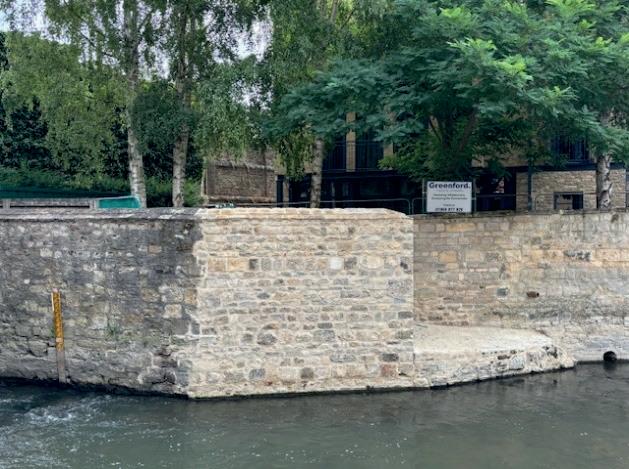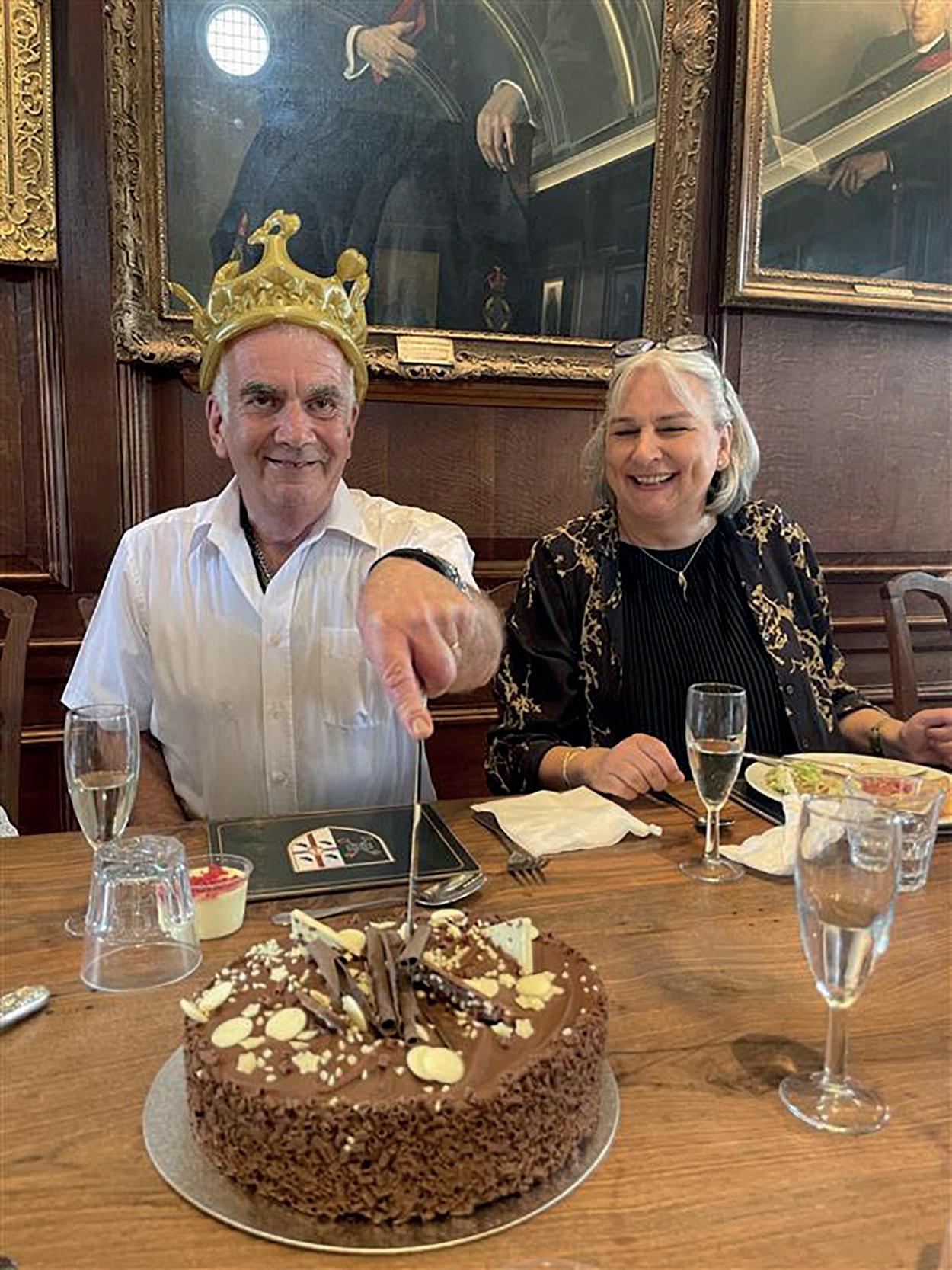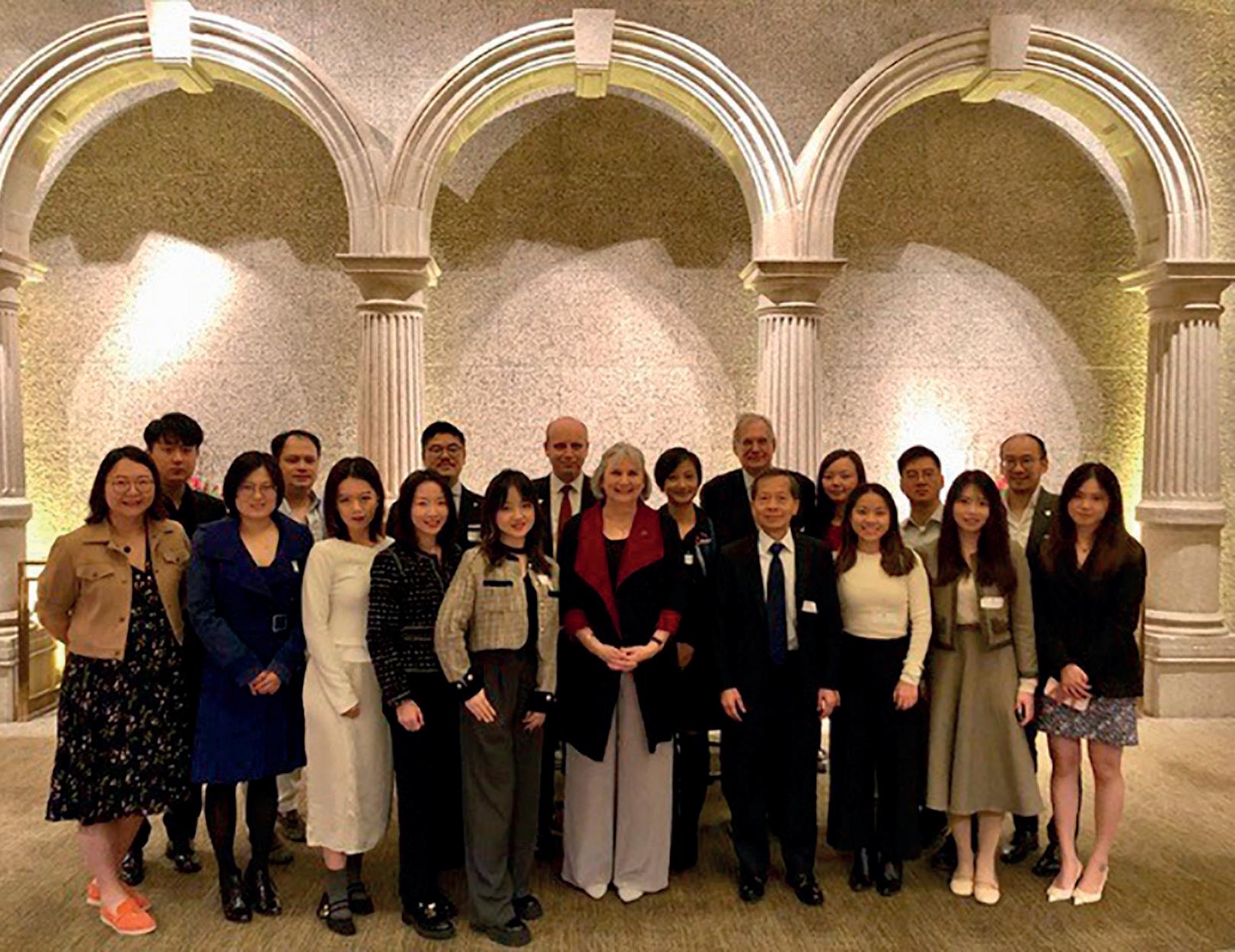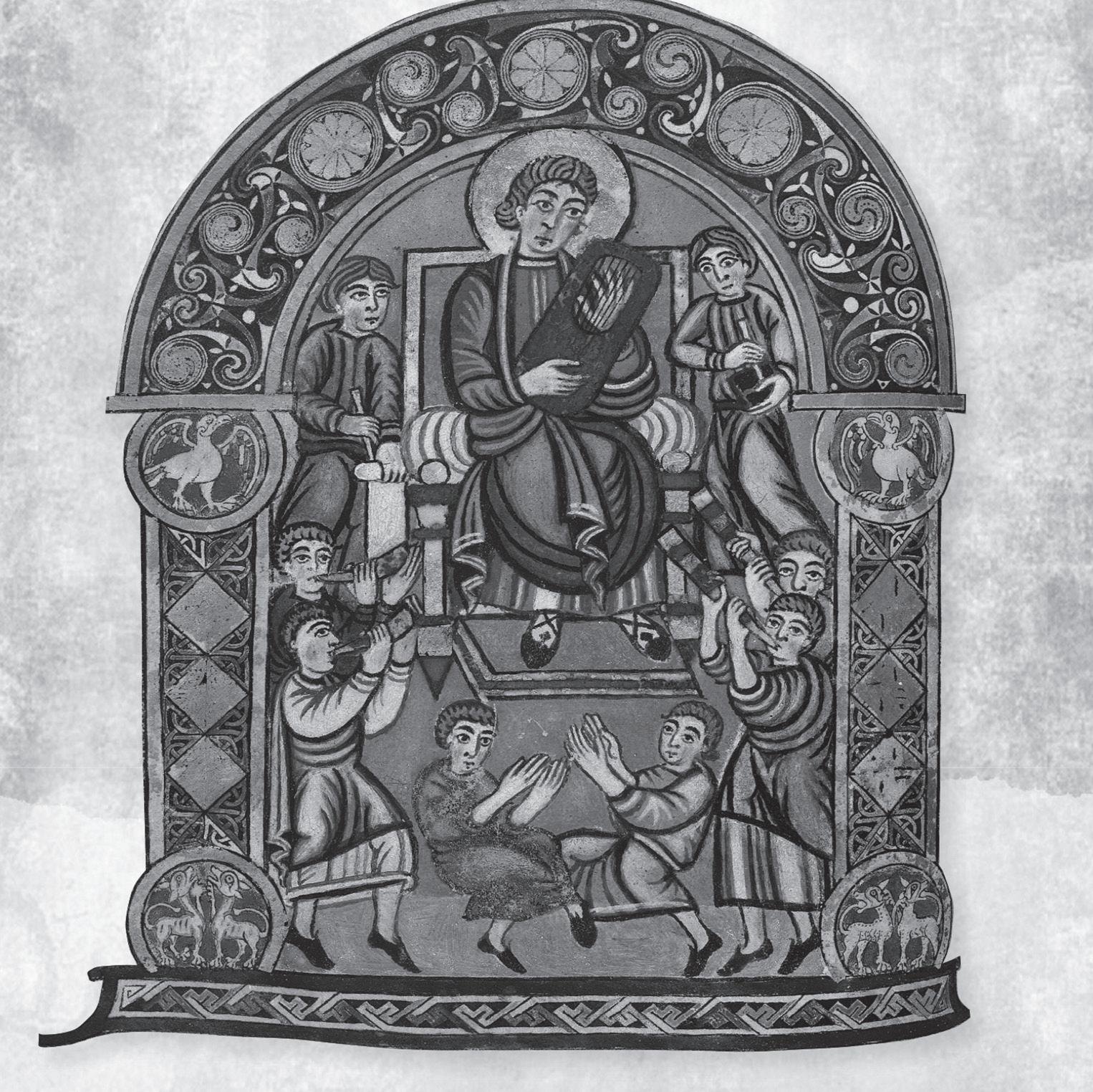Development and Alumni Engagement Report 2023-24
By Brett de Gaynesford, Director of Development and Alumni Relations
Every year brings new opportunities to connect, celebrate and build upon the legacy of our extraordinary St Peter’s community. This past academic year has been no exception, and I’m pleased to share some of the highlights with you, and to reflect on a year full of events, special occasions, campaigns, expanding the Development Team and marking milestones together.
Throughout the year, we were delighted to welcome more than 1,100 alumni and 600 guests to events in Oxford, London and across the globe. These included three wonderful Gaudies, which brought alumni from the years spanning 1975-1989 back to College. As always, the camaraderie, storytelling and laughter carried on well into the night, often finding its way to the old College Bar in the early hours. Seeing so many of you reconnect with old friends – and also forge new friendships with familiar faces – demonstrates how strong the College connection remains, regardless of time or distance.
One of the standout moments of Michaelmas Term was Shakespeare@Peter’s, a special celebration to mark the 400th
anniversary of Shakespeare’s First Folio. The Master and the Artistic Director Emeritus of the Royal Shakespeare Company, Sir Gregory Doran, co-hosted this event in collaboration with The Bodleian. Alumni, students and friends joined in the afternoon programme with enthusiasm, reading passages from Shakespeare plays with infectious energy. The celebration culminated in an immersive Shakespeare Banquet in Hall, where Dame Janet Suzman, Royal Shakespeare Company actors and our own College Choir delivered unforgettable performances between courses. It was a day filled with stimulating talks, artistry, music and joy, and we remain grateful to members of the St Peter’s College Foundation, whose support made this event possible.
Notably, our connections during the year extended far beyond Oxford. The Master attended dinners in Hong Kong, New York, Washington DC and Boston, meeting alumni who remain deeply
engaged with College in spite of the distance. We remain extremely grateful to hosts William Lau (1995), Patrick Turner (1978), Fay and Tom Cook (1959), and for the planning support of Olivia Choi (1995).
Returning closer to home in Trinity Term, June 2024 saw a truly historic milestone for College: the opening of Castle Bailey Quad. It was a weekend alive with excitement and activity as Fellows delivered a series of brilliant flash talks, students led tours of the new Damazer House and Westfield House, and alumni explored exhibitions that showcased the evolving footprint of the St Peter’s estate over time. A highlight of the celebrations was the ribboncutting ceremony, performed by Lord Patten, Chancellor of the University, which officially opened the new Castle Bailey Quad.
We wrapped up the weekend with our annual Benefactor’s Day, a fitting way to thank all of you whose generous support makes such transformative projects possible.
For those who were unable to join us in person, extend thanks to Guy Stokely (1963) and the St Peter’s College Foundation for making Choir performances and other special events accessible through livestreaming from the Chapel. It’s wonderful to know that no matter where you are in the world, you can still enjoy the beautiful music of our Choir giving a live performance. If you haven’t already, I encourage you to explore these moments now recorded on our YouTube channel: St Peter’s College Chapel, Oxford.
Alumni gather in Hong Kong for a St Peter’s Dinner, January 2024
Sir Greg Doran and Dame Janet Suzman with the Master at the Shakespeare@Peter’s Gala Banquet, December 2023
Alumni Sean Kelly, Nicola Kelly, Michele von Buren and Paul Farmer share a toast at the 1980-84 Gaudy, March 2024
As you know, at the heart of everything we do is our commitment to providing an exceptional education and enriching life experiences for our students. Given that student fees only cover a part of the cost of this ambitious endeavour, we rely on the generous support of our donors to help cover the gap. Whether you contribute through a monthly or annual gift, make a special donation that is meaningful to you, or support us in other ways, your steadfast commitment enables us to plan for the future and ensures that St Peter’s students continue to thrive.
We are also grateful for the incredible response to our Telethons during the year. Across these campaigns, we connected with nearly 300 alumni and raised a remarkable £288,000. More than three quarters of those we spoke with chose to participate in some way, reaffirming the commitment our alumni have to supporting St Peter’s students and the College as a whole. A huge thank you to all who took part.
Legacy giving also deserves special recognition. Alumni who choose to remember St Peter’s in their wills leave a lasting legacy that ensures future generations can benefit from the same transformative education and experiences they enjoyed. We are grateful to those of you who have made this thoughtful commitment.
As we embark on the 2024-25 academic year, we are excited to welcome new faces to the Development and Alumni Relations Team. They are keen to meet alumni, so please do introduce yourselves at upcoming events or by getting in touch directly.
Finally, thank you for your ongoing engagement with St Peter’s. Your involvement, whether through attending events, participating in Telethons, or simply staying in touch, greatly enhances the life of the College.
We always love hearing your news and welcoming you back, and we’re here to help connect you with fellow alumni, old friends, tutors and students. We look forward to seeing you soon.
Keep in Touch with the Development Office
Brett de Gaynesford – Director of Development and Alumni Relations
Liz Ryan – Deputy Director of Development
Olga Batty – Head of Development Operations
Nadia Amina – Campaigns and Data Officer
Genista Astell – Alumni Engagement Officer
Tom Gould – Development Officer
Jane Kuper – Development Coordinator
Telephone: +44 01865 614985
Email: development.office@spc.ox.ac.uk
Development and Alumni Relations Office
St Peter’s College
New Inn Hall Street, Oxford, OX1 2DL
www.spc.ox.ac.uk
You can follow us on social media, including Instagram, YouTube, Facebook, Twitter, and our LinkedIn Group.
CHAVASSE CIRCLE DONORS
Anonymous (7)
Alexander Mosley Charitable Trust
Mr Stephen Diggle (1982)
Sir Lloyd Dorfman CBE
Dr Mortimer & Theresa Sackler Foundation
Edward Penley Abraham Cephalosporin Fund (EPA)
The Lord Farmer
Mr Jocelin Harris (1964)
The Rt Hon the Lord Hodgson of Astley Abbotts CBE (1961)
Mr Charles Ind (1982)
Dr Sylvie Jackson
Mr Haarjeev Kandhari (1993)
Latner Family
Latsis Family
Mr William Lau
Laura Ashley Holdings Plc
Lemos Family
Perrodo Family
Rhodes Trust
Rothermere Foundation
Sackler Trust
Ms Dalia Salaam Rishani (1985)
& Mr Ramzi Rishani
St Augustine’s Foundation
Mr Guy Stokely (1963)
St Peter’s College Foundation
TEPCO
Mr Anthony Weldon
MASTER’S CIRCLE DONORS
Anonymous (4)
A. G. Leventis Foundation
Mr Stuart Banks (1992)
Mr Daniel Bilbao (1978)
Professor Thomas Cook and Faye Cook (1959)
Sir Ian Davis
Mr Peter Foy (1960)
Mr Richard Harding (1970)
Mr Carl Hughes (1980)
Mr Jeffrey Knight (1957)
Landau Foundation
Sir Michael Moritz
Professor John O’Connor
Pepsi Co Foundation
Mr Clive Rutherford (1965)
Mr Stephan Shakespeare (1976)
Mr Lawrence Smith (1978)
Thames Water Plc
Thomson Reuters Foundation
Mr Patrick Turner (1978)
Mr Neil Warriner (1981)
Mr Stephen Wilcock (1956)
Mr Charles Wilkinson (1982)
Wolfson Foundation
GREEN AND GOLD CIRCLE DONORS
Anonymous
Angus Lawson Memorial Trust
Mr Robert Appleby (1980)
Mr John Bain OBE (1958)
Mr Jonathan Barry (1999)
Mr Michael Batchelor (1956)
Mr Gregga Baxter (1978)
Mr David Bucknall (1986)
Mr Paul Bushell (1964)
Mr Robert Calcraft (1983)
Dr Robert Calderisi (1968)
Mr Sunir Chandaria (1998)
Mr Adam Chinn (1979)
Mr James Dalrymple (2000) & Mrs
Sophie Dalrymple (2002)
Mr Benjamin Dell (1995)
Mr Barry Douthwaite (1958)
Mr Roger Dyer (1976)
Professor Sir David Eastwood DL (1977)
Esmee Fairbairn Foundation
Mr John Foster (1970)
Dr Jon Fuller (1960)
GAV Properties
Miss Tara Glen (1988)
Mr Jim Golcher (1964)
Mr Jeremy Greenhalgh
Mr Richard Heffer (1965)
Dr Takeda Hitachi
The Houghton Dunn Charitable Trust
Mr Lijian Jiang (2003)
Mr David Lane (1982)
Mr Clay Maitland
Dr Roger Marshall (1958)
Murphy Foundation
Ox-Academic Summer School Tours Ltd
Mr Paul Pearman (1970)
Mr Michael Percival (1963)
Mr Jonathan Petitpierre (1962)
Mr Peter Phelan (1964)
Mr Anthony Pilkington
Mr John Poole (1953)
Mrs Tessy Porphyrios
Mrs Sharon Powers (1989) & Mr Stuart Powers (1989)
Mrs Jacqueline Ranawake (1988)
Dr Grant Rhode (1974)
Mr Geoffrey Riba-Thompson (1977)
Mr Nicholas Segal (1976)
Dr Ian Skidmore (1959)
Mr Stuart Smith FRCS (1969)
St Peter’s Society
Mr Jeremy Taylor (1992)
Mr Richard Thompson (1981) &
Ms Louise Wood (1981)
Mr A J Tracey
Mr Anthony Tuckwell (1962)
Professor Robert Tyrrell (1969) Vandervell Foundation
Sir Gerald Warner KCMG (1951)
Weinstock Fund
Mrs Rosemary Wharton & Mr David Wharton
Mr Nicholas White (1978)
Mr Alan Wills (1982)
Mrs Susan Wulstan
Mr George Yacoub (1954)
Mr Faisal Yamani (1995)
Yellowwoods Trust
Mr Martin Yuen
*Bold – New Members of the Circle
Back: Olga Batty, Tom Gould, Brett de Gaynesford Front: Nadia Amina, Jane Kuper, Genista Astell
St Peter’s College is grateful for the generous gifts during the year 1 August 2023 - 31 July 2024 from the following:
1946
Mr Michael Tibbs OBE
1947
Mr Eric Gordon*
1948
Mr Richard Hales
Mr Peter Harrison
Dr Donald Malkinson
1949
Sir Kenneth Bloomfield MRIA
Mr John Trueman
1950
Professor John Annett*
Mr Frederick Moysen
Mr James Siddons*
Dr James Tomkinson
1951
Dr Colin Bailey OBE
Mr Robert Leslie
Sir Gerald Warner KCMG
Mr Eric Wood
1952
Mr Michael McClew
Mr Gordon Newbery
Mr Arnold Taylor
Mr Colin White
1953
Mr Frank Cookson
Mr Sean Hignett
Mr Bryan Maybee JP
Dr Bryan Pierce
1954
The Right Reverend Colin Bazley
Mr John Cole
Mr Christopher Lilwall
Professor Dr Terence Meaden
The Reverend Robert Mighall*
Dr Derek Rushton
Mr Peter Waterman
Mr George Yacoub
1955 Anonymous
Mr Michael Rogers
Mr Martin Slatter
Mr Brian Weston OBE
Dr Mark Weston
1956
Mr Michael Batchelor
Mr Keith Garland
Mr John Mellor
Mr Michael Pipes MBE
Mr Michael Richardson
Mr Frank Roberts*
Mr Terence Stevens
Professor John Widdowson
Mr Geoffrey Yates
1957
Mr Colin Bailey*
Professor John Bradfield
Mr Christopher Curson
Mr Ian Fleming
Dr David Griffiths
Mr Roger Herrera
Mr Albert Johnson
Professor Meirion Lewis CBE
Mr Peter Lewis
Mr Ken Loach
Mr Norman Philbey
Mr John Richardson
Mr Brian Snelson
Mr William Stevenson
Mr Hugh Turrall-Clarke
Mr Donald Webber
1958
Anonymous
Mr Charles Akeroyd
Mr Barry Anson
Mr David Ashton
Mr John Bain OBE
The Revd Canon David
Dr Roger Marshall
Mr Colin Pearson
Mr Ken Pye
Air Commodore
Philip Wilkinson
Mr John Wright
1959
Professor David Berry
Professor Thomas Cook
Mr James Dawson
Mr John Dobson
Mr David Fuller
The Reverend Christopher Idle
Mr Stephen Metherell
Mr Robin Privett
Dr Peter Raggatt
Dr John Salinsky
Dr Ian Skidmore
Dr Robert Twycross
Mr Richard Wells
The Reverend Prebendary
John Wesson
1960
Dr Anthony Blake
Mr Richard Bond
Mr David Cox
Mr Hector Davie
Dr Christopher Davies
Mr Gerald Eveleigh
Dr Jon Fuller
Mr Barry Glazier
Mr Frederic Goodwin
Dr Peter Hartley
Mr John Hermon
Dr Geoffrey Kemp
Dr Richard Mayne
Mr Robert Morgan FRCS
Mr John Perrin
Mr Ian Robertson
Mr Robert Savage
Dr Philip Surman
Mr Nick Towers
The Reverend Dr Iain Whyte
1961
Anonymous (2)
The Reverend Canon
John Brown
Mr Robert Bryce
Professor Dr Stanley Cameron
Professor Dwight Eddins
Mr Jonathan Edwards
The Reverend Canon
Anthony Hawley
The Rt Hon the Lord
Hodgson of Astley
Abbotts CBE
Mr John Jarvis
Mr Christopher Legge
Dr Christopher Lynch
Professor Graham Orpwood*
Mr Frank Parker
Dr Derek White
Mr Derek White
Dr David Young
1962
The Reverend Barry Ashdown
Sir Roger Bone KCMG
Mr Christopher Booth
Mr David Carter
Dr David Edwards
Dr Charles Griffin
Mr Clive Jackson
Mr Paul Jenkins
Dr Andrew King
Professor Robin Leake
Mr Norman Maxwell
Mr Bryan Morgan
Mr Mike Orriel
The Reverend Canon
John Payne-Cook*
Mr Jonathan Petitpierre
Mr David Scott
Dr Martin Shain
Mr Anthony Tuckwell
Mr Paul Wolff
1963
Mr Frank Blewett
Dr John Doveton
Mr Richard EdgecliffeJohnson
Mr Ian Ewing
Mr Patrick Howard
Mr David King
Professor Geoffrey le Grys
Mr Geoffrey Nicholson
Mr Derek Parr
Mr Michael Percival
Mr Christopher Purcell
Mr Mervyn Samuel
The Reverend Father
John Smethurst*
Mr Guy Stokely
Mr Timothy Taylor
Mr John Watson
The Reverend Paul Winchester
1964
Anonymous
Professor Chris Ashton
Ambassador Anthony Benjamin
Mr Robin Browne
Mr Paul Bushell
Mr John Clark
Mr Rod Dalmaine
Mr Robin Dixon
Mr Donald Gardner
Professor Roger Gill
Mr Jim Golcher
Dr Christopher Green
Mr Jocelin Harris
The Reverend Christopher Jackson
Dr Hubert Messing
Mr David Perfect
Mr Peter Phelan
Dr John Pidgeon
Mr Peter Theodoulou
Dr Timothy Ward
1965
Anonymous
Dr Kenneth Addison
Mr Ronald Akhurst
Mr David Aspinwall
Mr Gordon BOTTOMS
Mr David Brearley
Mr Alan Brown
Mr Owen Darling
Mr Andrew Flockhart
Mr Philip Hunwick
Mr Brian Jones
Mr John Modley
Mr Duncan Paylor
Mr John Pope
Mr Clive Rutherford
Mr Mike Tiley
Mr Richard Tudway
Mr David Wightman
Mr Richard Woolmer
1966
Mr Paul Burden
Mr Andrew Davison
Mr Michael Galey
Professor Roger Jones OBE
Mr Alan Lane
Mr Peter Nunn
Mr Robin Percival
Dr John Pilling
The Right Reverend
John Pritchard
Mr John Rawling
Mr Paul Richards
Mr Anthony Roberts
Mr Alastair Robertson
The Reverend Howard Rogers
Mr Bob Schofield
Mr Timothy Smith
Mr Anthony Staples
1967
Mr Rupert Birtles
Dr John Bolland
The Very Reverend
Philip Buckler
Mr John Corran
Mr Alan Evans*
Mr Roger Holehouse OBE
Dr Andrew Holton
Mr Patrick Hooper
Mr Douglas Johnson
Mr Joseph Keating
Mr Philip Lawder
Professor Merfyn Lloyd OBE
Professor Jonathan Poulton
Mr Ashley Ray
Mr Jeffrey Saunders
Dr John Seager
Dr John Sloper
Dr Geoffrey Thomas
Mr Timothy Tiley
Professor Roland Vaubel
1968
Anonymous
Dr Jonathan Angel
Mr Richard Belfield
Dr Robert Calderisi
Mr Michael Clark MBA
Mr John Clifford
Dr Malcolm Coe
Mr Guy Fiegehen
Mr Stephen Hill
Mr Barry Hunt
Dr Andrew Jones
Mr David Kirk*
Mr Martin Leeburn
Mr Peter Lee-Wright
Dr John Low
Professor Stephen Nussey MRCP
Mr Anthony Ollerenshaw
Mr Richard Pengilley
Dr Paul Sanders
Mr Geoffrey Walker
1969
Anonymous (4)
Mr Jeremy Angel
Mr Douglas Angus
Mr STEPHEN BERRY
Mr Ian Birch
Mr Patrick Callaghan
Dr Philip Christie
Professor Douglas Davies
Dr Anthony Gore
Mr John Hall DL
Mr David Hart
Mr Ian Hill
Mr Ronald Jenkins
Mr Edward O’Neill
Mr Anthony Searby
Mr Kim Slater
Mr Jeremy Stickings
Professor Robert Tyrrell
Mr Philip Wiper
Mr Michael Zyw
1970
Anonymous
Dr Christopher Austin
The Reverend Monsignor
Christopher Brooks
Mr Dick Brown
Mr John Evans
Dr Nicholas Evans
Mr David Frampton
Mr Peter Garforth-Bles
Mr Ronald Higham
Mr Victor Knight
Dr Dennis Leuer
Councillor David
Norman MBE
Mr James Savin*
Mr Steve Shepherd
Dr Nicholas Simpson FRCS
Dr Roger Suthren
Professor Mark Williams
1971
Mr Roger Adams
Dr Stephen Bailey
Mr Stuart Cooke
Dr Martin Dace
Mr Robert Gill
Mr Geoffrey Hatcher
Mr Alan Heath
Mr William Homan-Russell
The Reverend Nigel Panting
Mr Stephen Hughes
Mr John Noyce
Mr Paul Kendall
Dr Ervine Long
Dr John Marshall
Mr Jerry Moore
Mr David Potts
Mr Stephan Roman
Mr John Scott
Sir Stephen Stewart
Mr John Towers
Dr Eboo Versi
Mr Christopher Wain
1972
Mr Ian Biddlecombe
Mr David Campbell
Mr Christopher Dale
Dr Ian Dennis
Mr Stephen Despres
Mr Martin Eldred
Mr John Gabriel
Dr Peter Galliver
Mr John Glencross
Dr Paul Hancock
Dr Simon Helan
Mr Peter Johnson
Mr Norman MacLeod
Dr Philip Newman
Dr Charles Pell
Commodore Michael
Potter
CBE
Admiral Sir Mark Stanhope
GCB OBE ADC
Mr Robert Wilson
Mr Anthony Withnell
1973
Anonymous (2)
Mr Robert Atkins
Professor Richard Bessel
Mr Robert Bourne
Dr Richard Brady
Mr John Clark
Dr Christopher Davies
Professor Gerard Evan
Professor Nicholas Goddard
Mr Jonathan Harwood
Mr Matthias Holland
Dr Norman James
Mr David Kerry
Mr Richard Leafe
Mr Charles McDowall
Mr Martin Moss
Mr Paul Rowson
Dr John Sheldrake
Mr David Sheppard
Mr Leslie Sheppard
Mr Trevor Ward
Mr Simon Williams
Mr Philip Wood
1974
Anonymous (3)
Mr Stephen Callen
Mr Paul Chamberlain
The Reverend Paul Day
Professor David Edwards
Mr John Gavan
Mr Robin Hodgkinson
Mr Andrew Mercer
Dr Christopher Minns
Mr Stephen Perkins
Dr Alexander Popovich
Mr Stephen Pull
Dr Grant Rhode
Mr Ian Robinson
Mr Graham Shore
Dr Christopher Waddington
Mr Hugh Watson
1975
Mr Peter Bettley
Dr Roger Brambley
Mr Andrew Burnett
Mr Christopher Chantler
Dr Mark Eller
Mr Matthew Hayes
Mr Brian McMahon
Mr Richard Millward
Mr Douglas Nicholls
Dr Richard Rahm
Mr Mark Rogers
Mr Neil Rostron
Mr Ian Walker
Mr Richard Wilkinson
1976
Mr Roger Dyer
Dr Philip Hirst
Mr Julien Hofer
Mr Timothy King
Mr Peter Kranstover
Mr Guy Leach
Mr Timothy Lietzke
Mr Alan Mason
Mr Nigel Penn-Simkins
Mr Nigel Perry MBE FRENG
Mr John Stephenson
Mr Peter Tonissoo
1977
Anonymous
Mr Nicholas Cattermole
Mr William Clare
Professor Sir David Eastwood DL
Dr William Evershed
Mr John Fray
Mr John Guthrie
Mr Michael Harris
Mr Stephen King
Mr Robert Kirk
Mr Hidenori Murakami
Mr Ian Parker
Mr Martin Pearman
Mr Bruce Potter
Mr Allan Silverman
Mr Mark Simmons
Mr Roderic Sparks
Mr Andrew Tarling
1978
Dr Alan Bacon
Dr Michael Barnard
Mr Sherry Bates
Mr Gregga Baxter
Professor John Benson
Mr Daniel Bilbao
Mr Richard Brake
Mr Anton BRAY
Mr Ian Edward
Mr Nigel Grice
Mr David Hardcastle
Mr Jon Phelps
The Reverend Robert Ritchie
Mr Lawrence Smith
Dr Neil Stephenson
Mr Patrick Turner
Mr Nicholas White
1979
Mr Mark Allen
Mr David Allsop
Mrs Karin Carver
Mr Nicholas Fellows
Mr Marcus Hine
Mr Christopher Horril
Mr Nicholas Martin
Dr Philip Mitchell
Mr Jeremy Morrish
Mr Robin Nielsen
Mr Andrew Ockwell
Mr Christopher Parker
Mrs Ruth Scotson
Dr Christopher Slinger
1980
Anonymous
Dr Thomas Bailward MA
MBBS MRCGP MRCPCH
Mr Mark Emerton
Mr Brett Hannam
Mr Simon Hardy
The Right Reverend John Holbrook
Mr Adrian Hopkins KC
Professor Robert Huddart
Mr Carl Hughes
Mr Mark Jackson
Mr John King
Dr Robert Lunn
Dr Andreas Nowak
Dr Karen Popp JD
Mrs Helen Riddle
Mr Jonathan Riddle
Mr Mark Wilson
Mr Nicholas Worth
Mr Ian Yorston
1981
Anonymous
Dr Sara Caine
Mr Ivor Chomacki
Ms Joanna Duckworth
Mr Richard Hillebrand
Mrs Judy Luddington
Mr Vincent Lugthart
Dr Carole Lunn
Dr Kevin Morgan
Mrs Michaela Mouquet
Mrs Paula Packman
Mr John Rabin
Mr Adam Richards
Mr Christopher Rose
Mr John Steveni
Mr James Thompson
Mr Richard Townsend
Mr Marc Versloot
Mr Karl Wallendszus
Mr Christopher Woodward
Mr Michael Woolrich
Mr Jonathan Yousafzai
1982
Anonymous (2)
Mr Alistair Carder-Geddes
Mr David Chalfen
Mr John Clark
Mrs Nicola Halls
Dr Ronald Haynes
Dr Lawrence Impey
Mr Charles Ind
Mr Thomas Jenkinson
Mr Ashwani Kochhar
Mr David Lane
Mr Stuart Nicholson
Mr Andrew Packman
Squadron Leader
John Richardson
Miss Rachel Shapton
Mr Charles Wilkinson
Miss Karen Woodall
1983
Mr Keith Bailey
Mrs Kathryn Biggs
Mrs Susi Clargo
Ms Maria Hall
Mr Sean Kelly
Mr Jonathan May
Mrs Amanda Mobbs
Mrs Anne Oram
Mr Michael Powell
Mr Graham Smith
Mr Christopher Warren
1984
Mr Toby Davies
Mr Peter de Wesselow
Mr Paul Farmer CBE
Dr Peter Francis
Mr Simon Fretwell
Mr Dominic Hardisty
Mr Peter Jackson
Mrs Nicola Kelly
Mr Jeremy Kemp
Dr Martyn Knowles
Mrs Elizabeth May
Mr Adamantios Miranda
Professor Dr Makoto Ogino
Ms Jacquelyn Pidgley
Mrs Kathryn Samano
Dr Peter Stephenson
Mr Martin Webber
1985
Mrs Victoria Belovski
Mrs Sarah Christie
Mr John Clargo
Mr Simon Edsall
Mr Jeremy Hill FIA
Mr Paul Holloway
Mr Allen Hubsch
Dr David Livings
Mrs Caroline McDowell
Mrs Caroline Robertson ASRM
Mrs Julie Rouffiac
Ms Dalia Salaam Rishani
Professor David Smith
Dr Duncan Spiers
Mrs Katherine Stenner
Mr Davide Taliente
Miss Lavell Thompson
Mr John Turner
Mr Peter Van den Berghe
Dr Sean Walls
1986
Anonymous
Mrs Ruth Appleton
Mr Timothy Bishop
Mr David Bucknall
Professor Kate Crosby
Mr John Duff
Mrs Alice Francis
Miss Katherine Goulden
Mr Guy Hopkins
Mr Michael Jarrett
Mrs Amanda Jewell
Mrs Jessica McCarthy
Mr Timothy Parkinson
Mr Kempton Rees
Mr Meredydd Rees
Mr James Rice
Mrs Anna Sedenu
Mr Paul Thomasson
Mrs Rachael Wardell OBE
1987
Mr Nicholas Andrews
Mrs Julia Barder
Mr Kevin Bibby
Mr Charles Bithell
Professor Jacek Brodzki
Ms Georgina Calvert-Lee
Mr Timothy Chapman
Ms Jennifer Duvalier
Mr Paul Geddes
Mr Stephen Harris
Mrs Suzanne Haywood
Mrs Lucy Helliker
Mr Neil Hemingway
Mr Richard Horrocks-Taylor
Mr Stephen Judd
Mr Aurelian Lis
Ms Anna Locke
Mrs Sarah Margolin
Mrs Catherine McMahon
Ms Kerynne Metherell
Dr Dominic Mort
Dr Dominic Neary
Mr John O’Brien
Mrs Emma Ritson
Mr Michael Saunter
Dr Mark Steel
Dr John Turner
Mr David Vaughan
1988
Mr James Anderson
Mrs Kate Andrews
Mr Matthew Born
Mr David Churchill
Ms Christina Galbraith
Ms Samantha Gibson
Miss Tara Glen
Dr Neil Hampton
Mr Philip Lowe
Ms Claudine Macintosh
Ms Gwyneth Marshman
Mrs Clare Oglesby
Professor Chris Parsons
Mrs Jacqueline Ranawake
Mr Gregory Shepherd
Ms Helen Snelson
Mr Guy Voizey
Mr Robert White
Dr Alan Wiles
Mrs Helen Williams
Princess Ulrike Zu
Salm Salm
1989
The Reverend Dr
Jonathan Arnold
Mr Alexander Gordon
Mrs Louisa Gosden
Mr Peter Hamer
Mr Stephen Hodbod
Mrs Dalia Joseph
Mr James Lonsdale
Dr Gautam Prakash
Mr Daniel Smithers
1990
Mr Christopher Bates
Mr Peter Blackman
Mr Michael Briest
Dr Richard Chapman
Ms Andrea Chipman
Mr Andrew Grimshaw
Mr David Little
Mr Jason Morrow
Mr Stefan Reid
Dr Jeffrey Simon
Dr John Skidmore
Mr Andrew Taggart
Lieutenant Colonel
Andrew Thomson
Mr John Vater KC
Dr Nicola Warren
1991 Anonymous (3)
Dr Rachel Barnard
Mr Danny Broderick
Dr Frazer Clark
Mr Dominic Ely
Dr Claire Fox
Mrs Elizabeth Fullalove
Mr Mark Hanlon
Professor Adam Mead
Ms Gillian Orrell
Mr Hew Smith
Dr Benjamin Underwood
Dr William Whyte
Mrs Caroline Wilson
Mr Jonathan Wilson
1992
Anonymous
Mr William Adlam
Mr Stuart Banks
Mr Benjamin Beabey
Mr Simon Blake
Professor Robert Chambers
Mrs Katherine Davies
Ms Jenny Galimberti
Ms Louise Gooch
Ms Natasha Jakubowski
Mrs Juliet Jukes
Mr Matthew Jukes
Mrs Katerina Mirkou
Mrs Caroline Peach
Mr Steven Sabey
1993 Anonymous
Dr Christopher Briggs
Mr Cameron Brown KC
Dr Joseph Burn
Mr Mark Charles
Mr Christopher Herbert
Mr Jeremy Hill
Mr Christian Hoyer Millar
Mr Tom Ibbotson
Mr Haarjeev Kandhari
Dr James Mason
Mrs Francesca Modi
Mrs Joanne Monk
Mr Charles NewingtonBridges
Mrs Tamsin NewingtonBridges
Mr Ed Nottingham
Dr Elizabeth Pilling
Dr Neil Scotchmer
Mr Robert Sheppard
Mr Alexander Skinner
Mrs Fiona Steel
Mr Cameron Walton Masters
Ms Elaine Whitehouse
1994 Anonymous
Dr Hashim Ahmed
Mr Mark Alliban
Mrs Cat Bagshaw
Mr Dominic Bown
Mr Asa Bridle
Dr Rosalind Bridle
Mr David Collard
Mrs Helen Fowler
Miss Nicole Gregory
Mr Danish Hamid
Mrs Emma Hardaker
The Reverend David Harknett
Mr Timothy Harrop
Mrs Esther Ibbotson
Mr Howard Landes
Dr Jeevani Mantotta-Maxted
Mrs Laura Massey
Mr Montu Modi
Lieutenant Colonel Beverley Morgan
Miss Christine O’Connell
Mrs Kate Scotland
Mr Peter Spicer
Mr John Wilks
Mr James Young
Mrs Jennifer Young 1995 Anonymous
Dr Janet Bastiman
Dr Olivia Choi
Mr Matthew Dunn
Miss Emily Elias
Mr Stuart Frizell
Mr Paul Hallam
Mrs Clare Humphreys
Mrs Caroline Kamana
Dr Niall Keenan
Mrs Candida Lahaise
Mr Rupert Manduke Curtis
Dr Luke Massey
Mr Andrew McGuffie
Mr Nicholas Owers
Mr Jonathan Pocock
Ms Trudi Roberts
Ms Katherine Tozer
Mr Simon Whittaker
Mrs Ana Wilks
1996
Mr Benjamin Arnoldy
Dr Gerald Clancy
Mr Philip Eagle
Mrs Charlotte Fletcher
Mrs Edith Gowdy
Ms Nicola Harrold
Mrs Flavia Kenyon
Mrs Manfreda Penfold
Mr Paul Squire
Mr Benjamin Warner
1997
Anonymous (2)
Ms Louise Asher
Mr James Brunt
Dr Lena Ciric
Dr Helena Clarkova
Mr Joshua Doctor
Mr Samuel Gervaise-Jones
Mr Justin Gill
Mr Alan Greer
Ms Rebecca Lyon
Mr Warwick Okines
Ms Antoaneta Proctor
Mr Alexander Salvoni
Mr Peter Wigley
Dr Bethany Wright
1998
Mr Adam Dickinson
Mr Marcus Efstratiou
Mr Craig Giles
Mrs Katherine Lang
Mrs Stephanie Maier
Rabbi David Mitchell
Mr Roland Chavasse
Mr Ron Moscona
Mr Tom Payne
Mr Peter Pulsford
Mr Mark Roberts
Mr Richard Silcock
Mrs Louise Springthorpe
Mr Philip Valvona
1999
Anonymous
Mr Jonathan Barry
Dr Edward Botcherby
Mr David Century
Dr Hannah Clark
Mr Saul Doctor
Mrs Cecily Footner
Mr Matthew Foy
Professor Andrew Hayashi
Mr Iwan Lamble
Mr Gareth Lyons
Ms Catherine McShane
Dr James Zacks
Dr Nikolaos Zygouropoulos
2000
Mr Philip Alderton
Mr Nicholas Badger
Mrs Rachael Badger
Ms Joanna Biggs
Mr David Chavda
Mr William Collinson
Lieutenant Commander
Oliver Clark
Ms Lucy Davis
Mr Abhinandan Deb
Mrs Nicola Edger
Mr Jonathan Eves
Mr Tim Gaul
Mr Adam Heal
Mrs Hannah Jefferies
Mr Paul Jefferies
Dr Daniel Lambauer
Miss Hayley Moffat
Mr Christopher Morrison
Mr William O’Connor
Mrs Phillippa O’Connor
Mr Philip Oltermann
Mr Andrew Petterson
Mr Nicholas Redman
Mr Matthew Reynolds
Dr Matthew Richardson
Dr Christopher Smith
Mr Jonathan Smith
Dr Jonathan Weiss
2001
Anonymous
Professor Thomas Adcock
Mr Lewis Brito-Babapulle
Mrs Penelope Durant
Mrs Eleanor Franchitti
Mr William Gowdy
Dr Razi Hussaini
Ms Jennifer Lake
Mr Desmond Lau
Miss Stephanie Moorsom
Mr Joseph O’Brien
Mrs Laura O’Brien
Mr Peter Okell
Mr Somerset Pheasant
Dr Jeanne Salje
Mrs Zoe Vickerman
Dr Cheryl Walsh
2002
Miss Amy Beckenstrom
Dr Alice Beverly
Mr Michael Botcherby
Ms Isobel Bradshaw
Dr Scott Crawford
Mrs Lydia Dutton
Mr Robert Erbmann
Mr Stephen Harrison
Mrs Catriona Jenkins
Ms Tara Loader Wilkinson
Mr James Loat
Mr Damian Payne
Mr Andrew Prentice
Squadron Leader
Joseph Rigg
Ms Malini Skandachanmugarasan
Mrs Sophie Solly
Ms Carol Storey
Mrs Ella Williams
Mr Paul Williams
2003
Mr Jaimin Allen
Mr Antoine Artiganave
Mr Matthew Cates
Mr Henry Davis
Dr Alexis Gallagher
Dr Carolyn Haggis
Mr Eric Jiang
Dr Wendy Leutert
Mr Daniel Lowther
Mr Andrew McNeil
Mrs Josie McNeil
Mr James Partington
Mr William Pearce
Mrs Emily Pheasant
Mr Thomas Rayner
Mr Joseph Stewart
Ms Anna Whitfield
Mr Freddie Yiend
2004
Miss Tamara Barnett Wildman
Mr Colin Betteridge
Dr Rosemary Gowdy
Dr Gergely Imreh
The Reverend Dr Michael Leyden
Ms Shulu Li
Mrs Abigail Rosenberg
Mr Benjamin Rushton
Mr Gareth Russell
Mr John Theis
2005 Anonymous
Mrs Alexandra Britton-Davis
Dr Merima Brkic
Mr David Conway
Mr Kristopher Doyle
Mr Ben Jones
Mr Lee Kerslake
Miss Maya Kommer
Dr Aaron Krom
Mrs Anna Leyden
Dr Peter Newbold
Mr Amardeep Pannu
Mr Robert Payne
Mr Edward Rees
Dr Rok Sekirnik
Mrs Chen Wang
Ms Denise Xifara
2006
Anonymous
Mr Steven Altmann-Richer
Dr Ori Bowen
Dr Jessica Ehinger
Mr Adam Grodecki
Mr Stefan Hargreaves
Ms Sarah Heald
Miss Oyinkansola Johnson
Mr Carl King
Mr Andrew Pilkington
Mr James Poole
Miss Marissa Pueschel
Mr Luke Ryder
Mr Christopher Sykes
Mr Yuchen Xia
2007
Anonymous
Miss Fiona Cheung
Ms Jessica Davies
Mr Nick Green
Mr Thomas Hancox
Mr Jack Kennedy
Mr Samuel Moreton
Mr Thomas Pearman
Miss Laura Sweet
Miss Emma Waldock
Mr David Watson
2008
Mr Christopher Avellaneda
Miss Emily Bennett
Mr Edward Bersuder
Ms Gabriela Bersuder
Mrs Olivia Cohen
Mr Nathan Collins
Mr George Carr
Dr Fyodor Gainullin
Mrs Mary Anne Gayford
Dr Lily Harrison
Ms Jenny Hayes
Mr Alex Hern
Miss Poppy Hodgson
Mr Osamu Hoshino
Dr Henry Jackson-Flux
Miss Una Kim
Ms Anita Latsis
Mr Alasdair Morgan
Miss Caroline Pearman-Gibbs
Ms Cheryl Pilbeam
Mr Daniel Rozier
Mr Tendai Sibanda
Mr Ben Slingsby
Mr Oliver Tomlins
Mr Guy Watmore
Mr Samuel Willis
2009
Anonymous
Mr Christopher Ainscough
Mrs Bethan Coulson
Miss Eleanor Griffiths
Mr Peter O’Connor
Mrs Zahava Rosenthal
Miss Eve Ryle-Hodges
Dr Emily Turner
Mr Nathan Turner
Mr Alex Worth
Dr Jason Yuen
Mr He Zhu
Mrs Susan Jackson
Mr Thomas Try
Mr Robert Mitchell
Mr Thomas Smith
Miss Alexandra Cairns
2010
Mr Oliver Bristowe
Ms Alice Fraser
Mrs Gabrielle GleesonSolomon
Mr Jonathan GleesonSolomon
Mr Thomas Haigh
Ms Matilda Henderson
Mr Samuel Hirst
Ms Katy Kim
Mr Samuel Lecacheur
Miss Hannah Ledbury
Mr Chand Mehta
Mr Charles Miller
Mr Nakulkumar Patel
Mr Robert Sheeran
The Reverend Yaroslav Walker
2011
Dr Joel Beevers
Ms Natalie Cappellazzo
Mrs Erin Dickens
Miss Rachael Franklin
Mr Samuel Iles
Mr Thomas Jesty
Miss Louisa Manning
Dr Greer Mellon
Miss Amy Pether
Miss Alice Sorby
Ms Elizabeth Stockdale
Mr Gabriel Trueblood
Mr Joshua Wilce
2012
Mr John Armitage
Mr Michael Comba
Mr David Fitzpatrick
Mr Samuel Gebreselassie
Mr Craig Kirkham-Wilson
Mr Edward Lund
Miss Emilia Marsden
Mr Daniel Moore
Miss Jennifer Wallin
Ms Megumi Yamamoto
2013
Anonymous
Miss Sophie-Elise Anker
Miss Anissa Berry
Mr Matthew Brady
Mr Hussein Elbakri
Mr George Postlethwaite
Mr Douglas Smith
Dr Yegor Stepanov
Mr Nikolay Vasilev
Mr Jonathan Watson
2014 Anonymous
Dr Thiago Alves Pinto
Mr Karn Dasgupta
Mr Thomas Foxton
Miss Mary George
Mr Suchen Jin
Mr Isaac Kang
Mr James Lavin
Mr Michael Linford
Mr Noah Miller
Mr James Povey
Mr Robert Smillie
Mr Miles Winter
2015
Mr Sebastian Braddock
Dr Andreas Dürr
Miss Marina Goodman
Mr William Milnthorpe
Mr Neil Tang
2016
Mr Owen Ace
Mr Jonathan Gough
Mr Edward Hardy
Ms Georgina Hayward
Miss Rhianna Jones
Mr Thomas McAuliffe
Mr Tanmay Patankar
Miss Christy Sadler
Fellows and Friends
Anonymous (4)
Dr Roger Allen
Ms Jayne-Anne Gadhia
Mrs Carolyn Goetz &
Professor Stewart Goetz
Dr Sylvie Jackson
Lady Nancy Kenny
Mr Daniel Keyworth
Ms Nina Kruglikova
Dr John Latsis
Dr Alexander Lingas
Ms Jing Marantz
Professor Henry
Mr Alexander Mash
Miss Sarah Alford
Mr Joseph Brierly
Mr William Connell
Mr Luke Cooper
Miss Branwen Thistlewood
Mr Felix Westcott
Mr Frederick Wright
Mr Jason Bennett
Mr Kuan Yang
Mayr-Harting
Professor John O’Connor
Ms Ann Rypstra
Professor Edith Sim
Dr Giacomo Tortora
Institutions
Anjool Maldé Memorial Trust Datascope Recruitment
Google
Massachusetts Mutual Life Insurance Company
St Peter’s College Boat Club
St Peter’s College Foundation
St Peter’s College JCR
Legacy Donations
Received 1 August
2023 - 31 July 2024
Mr Brian Dodd 1964
Mr John Diggle 1963
Dr John Jones 1953
Mr Hugh Norman 1963
Mr Stephen Jackson 1975
Current Members of the Howard Society
A legacy represents the greatest honour that St Peter’s can receive. The Howard Society was set up in 1988 as a means of recognising in their lifetime, and after, those whose legacy gifts create opportunities for future generations to excel. It is named in honour of Robert Wilmot Howard, Master of St Peter’s from 1945-1955.
Anonymous (11)
Professor Thomas Adcock 2001
Mr Ronald Akhurst 1965
Miss Sarah Alford 2018
Mr Barry Anson 1958
Mr Paul Ardern 1970
The Rt Hon. the Lord Ashcroft KCMG
Mr David Aspinwall 1965
Mr David Atkinson 1983
Mr John Austin 1937
Mr John Austin 1986
Mr John Bain OBE 1958
Mr Adrian Baird 1974
Mr Waseem Baloch 1981
Mr Reginald Bannerman 1954
Mr Mike Beevers 1962
Professor Ellis Bell 1967
Professor John Benson 1978
Sir Kenneth Bloomfield MRIA 1949
Mr Gordon Bottoms 1965
Dr Richard Brady 1973
The Reverend Canon John Brown 1961
Mr Richard Bunker 1961
Mr Stephen Buswell 1976
Dr Sara Caine 1981
Mr Charles Chevers-Coppen 1973
Mr Derek Clarke MBE 1959
Ms Gloria Clutton-Williams
Dr Malcolm Coe 1968
Mr John Cole 1954
Professor Richard Collacott 1965
Mr Graham Cooksey 1954
Mr Frank Cookson 1953
Mr David Cox 1960
Mrs Daphne Cross
Mr Peter Dale 1960
Brigadier Clendon Daukes FCMI MIoD
Mr Adrian Davies 1961
Dr Christopher Davies 1960
Dr Christopher Davies 1973
Professor Douglas Davies 1969
Mr Philip Davies 1972
Mr James Dawson 1959
Mr David Dean 1981
Mrs Erin Dickens 2011
Mr Peter Dickinson 1954
Mr Robin Dixon 1964
Professor Sir Gordon Duff 1966
Mr John Duff 1986
Mr Brian Durrant
Mr Richard Edgecliffe-Johnson 1963
Mr Simon Edsall 1985
Mr Ian Ellingworth 1977
Mr Simon Ellis 1960
Dr Paul Evans 1976
Mr Gerald Eveleigh 1960
Mr Derek Flynn 1974
The Reverend Michael Forrer 1956
The Reverend Dr Michael Fox 1977
Mr Peter Foy 1960
Mr Keith Garland 1956
Professor John Gaskin 1956
Professor Roger Gill 1964
Mr Harvey Glasgow 1957
Mr Barry Glazier 1960
Miss Tara Glen 1988
Mr Travis Good 2004
Mr Frederic Goodwin 1960
Mrs Edith Gowdy 1996
Dr Christopher Green 1964
Dr Charles Griffin 1962
Mr Richard Hales 1948
Mr Philip Hall 1978
Mr James Harding 1972
Mr Richard Harding 1970
Mr Simon Hardy 1980
Mr Peter Harrison 1948
Mr Richard Heffer 1965
Mr Philip Helm 1962
Mr David Hewitt 1959
The Rt Hon the Lord Hodgson of Astley Abbotts CBE 1961
Mr Patrick Holt 1972
Mr David Howard 1963
Mrs Janice Hoyle
Dr Michael Hulse 1962
Mr Philip Hunwick 1965
Mr Daud Ilyas 1955
Professor David James 1961
Mr Michael Jerrom FCA 1961
Mr Philip Johnston 1959
Dr Andrew Jones 1968
Mr Norman Jones 1959
Dr Geoffrey Kemp 1960
Mr Christopher King 1965
Mr David Lake 1976
Mr David Lane 1982
Mr Philip Lawder 1967
Mr Christopher Lilwall 1954
Mrs Judy Luddington 1981
The Reverend Canon Brian Macdonald-Milne 1981
Dr Roger Marshall 1958
Mr Richard Marson
Mr Bryan Maybee JP 1953
Mr Jeremy McGahan 1975
Mr Andrew Mead 1961
Professor Dr Terence Meaden 1954
Mr Alan Mees 1968
Mr Stephen Metherell 1959
Dr Christopher Minns 1974
Lieutenant Colonel Beverley Morgan 1994
Mr Robert Morgan FRCS 1960
Professor John O’Connor
Mr Mike Orriel 1962
Mr Jena Pang 1996
The Reverend Nigel Panting 1966
Dr Neeth Paramananthan 1986
Mr Frank Parker 1961
Mr Timothy Parkinson 1986
Professor Chris Parsons 1988
Mr John Patchett 1974
Mr Martin Pearman 1977
Mr Richard Pengilley 1968
Mr Peter Phelan 1964
Mr John Poole 1953
Dr Michael Pope 1951
Mr John Pope 1965
Dr Christopher Porter 1980
Commodore Frederick Price MBE 1976
Mr Andrew Pryce 1969
Mrs Carol Pryce
Mr Lewis Redhead 1978
Mr Bernard Reed 1956
Mr Donald Reid 1957
The Reverend Geoffrey Riba-Thompson 1977
Mr Michael Richardson 1956
Mr Anthony Roberts 1966
Mr David Russell 1957
Mr Mervyn Samuel 1963
Dr Martin Shain 1962
Mr Martin Slatter 1955
Mr David Smith 1964
Mrs Irene Snook
Mr Kenneth Sprague
Mr Gordon Stanion 1953
Mr Guy Stokely 1963
Mr Michael Symes 1959
Professor Barrie Thompson 1965
Mrs Margaret Thompson
Mr Peter Thompson
Mr Michael Tibbs OBE 1946
Mr Michael Tiley 1965
Mr Anthony Tuckwell 1962
Mr Patrick Turner 1978
Mr Hugh Turrall-Clarke 1957
Professor Robert Tyrrell 1969
Mr Christopher Wain 1971
Mr Ian Walton 1988
Sir Gerald Warner KCMG 1951
Mr Peter Waterman 1954
Mr Roy Waters 1960
The Reverend William Watson 1957
Mr Richard Wells 1959
The Reverend Prebendary John Wesson 1959
Mr Brian Weston OBE 1955
Mr Nicholas White 1978
Mr Stephen Wilcock 1956
Dr Rhodri Williams
The Reverend Paul Winchester 1963
Mr George Winspur 1962
Professor Mike Woloch 1957
Mr Eric Wood 1951
Mr Francis Wyman 1981
Senior Members
2023-24
VISITOR
Lane, the Right Revd Libby, MA Oxf, DD (Hon) University of Wales
Trinity St David, Bishop of Derby
TRUSTEES
Hodgson, Robin Granville, the Rt Hon Lord Hodgson of Astley Abbotts, CBE, MA Oxf
Barron, Caroline Mary, OBE, MA Oxf, PhD Lond, FRHistS, FSA
Harris, Jocelin, MA Oxf
Mayr-Harting, Henry Maria Robert Egmont, MA DPhil DD Oxf, LittD (Hon) East Anglia, FBA
MASTER
Buchanan, Judith, BA PGCE Brist, MPhil DPhil Oxf
OFFICIAL AND PROFESSORIAL FELLOWS
Foot, Christopher John, MA DPhil Oxf, Perenco Fellow and Tutor in Physics; Professor of Physics
Dorkins, Huw Richard, BM BCh MA Oxf, MSc Lond, FRCP, FRCPath, E P Abraham Fellow and Tutor in Medicine; Dean of Degrees and Senior Tutor
Mason, Lionel Jeremy, MA DPhil Oxf, Tutor in Mathematics, Professor of Mathematics
Lakin, Nicholas David, BSc Nott, MA Oxf, PhD Warw, Rank Fellow and Tutor in Biochemistry, Professor of Molecular and Cellular Biology
Williams, Abigail, MA MPhil DPhil Oxf, Lord White Fellow and Tutor in English, Professor of Eighteenth-Century English Literature
Mawson, Timothy James, MA MPhil DPhil Oxf, Edgar Jones Fellow and Tutor in Philosophy, Dean and Fellow Librarian
Mayer, Hartmut, MPhil Camb, MA Tufts, DPhil Oxf, Tutor in Politics and International Relations
Antonini, Massimo, Laurea Venice, MA Middx, PhD Leic, Tutor in Economics; Tutor for Welfare and Tutor for Admissions
Bonsall, Michael, BSc PhD Lond, MA Oxf, Tutor in Biology, Professor of Mathematical Biology
Kail, Peter James Edward, BA Keele, MA Oxf, MPhil PhD Camb, Tutor in Philosophy; Tutor for Undergraduates
Nicholls, Geoffrey Keith, BSc Canterbury, New Zealand, MA Oxf, PhD Camb, Tutor in Statistics
Cooper, Cyrus, OBE, MB BS DM Lond, MA Camb, FFPH, FMedSci, FRCP, Professorial Fellow, Professor of Musculoskeletal Epidemiology
Soares de Oliveira, Ricardo, BA York, MPhil PhD Camb, Manika and Harjeev Kandhari Fellow and Tutor in Politics, Professor of the International Politics of Africa
Hausner, Sondra, BA Princeton, MA PhD Cornell, MA Oxf, Tutor in Study of Religion, Professor of Anthropology of Religion
Williams, Claire Elizabeth, BA Durh, MPhil PhD Camb, MA Oxf, Tutor in Brazilian Literature and Culture
Taylor, Peter C, BM, BCh Oxf, MA Camb, PhD Lond, FRCP, Professorial Fellow, Norman Collisson Professor of Musculoskeletal Sciences
Adcock, Thomas Alan Adcock, MEng, DPhil Oxf, Tutor in Engineering Science, Professor of Engineering Science; Fellow for Access
Dorling, Danny, BSc PhD Newc, Professorial Fellow, Halford Mackinder Professor of Geography
Burrows, Daron, BA MSt DPhil Oxf, Tutor in French, Professor of Medieval French
Rothwell, Phillip, MA PhD Camb, Professorial Fellow, King John II Professor of Portuguese Studies
Macias-Fauria, Marc, BSc Barcelona, MSc Calgary, PhD Helsinki, Tutor in Physical Geography, Professor of Biogeosciences (until 31 December 2023)
Baxter, Stephen, MA MSt DPhil Oxf, Barron Fellow and Tutor in Medieval History, Professor of Medieval History; Vice-Master and Fellow Archivist
MacKay, Marina, MA St And, PhD East Anglia, Tutor in English, Professor of English Literature; Tutor for Graduates
Moreno de Barreda, Inés, BSc UCM Madrid, MRes PhD LSE, Tutor in Economics
Leczykiewicz, Dorota, MSt DPhil Oxf, MLaw Wroclaw, Tutor in Law
Tuffnell, Stephen, BA MSt DPhil Oxf, Tutor in Modern United States History,
Monroe, Charles William, BSE Princeton, MA Oxf, PhD Berkeley USA, Alexander Mosley Charitable Trust Fellow and Tutor in Engineering Science, Professor of Engineering Science; Fellow for IT and Website
Neilly, Joanna, BA Oxf, MA Belf, PhD Edin, Tutor in German
Donnelly, Christl, CBE, BA Oberlin, MSc ScD Harvard, FMedSci, FRS, Professorial Fellow, Professor of Applied Statistics
Alonso, David, BSc MSc PhD Universidad Autonoma de Madrid, Carrie Perrodo Fellow and Tutor in Physics
Rajamani, Lavanya, BA LLB National Law School, BCL Oxf, LLM Yale, DPhil Oxf, Yamani Fellow and Tutor in Law, Professor of International Environmental Law
Burrell, Robert, LLB KCL, LLM Lond, PhD Griffith, Professorial Fellow, Professor of Intellectual Property and Information Technology Law
Hill, Sarah, BA California at Santa Cruz, MA Chicago, MA PhD Cardiff, Tutor in Music
Hilton, Robert George, BA PhD Camb, Tutor in Earth Sciences, Professor of Sedimentary Geology
Gilroy-Ware, Cora, BA Sus, MSt Oxf, PhD York, Tutor in History of Art
Bruno, Randy M, BSc Carnegie Mellon, PhD Pittsburgh, Tutor in Pre-clinical Medicine, Professor of Neuroscience
Kirrander, Adam, MSc Uppsala, MSc, DPhil Oxf, Tutor in Chemistry, Professor of Physical and Theoretical Chemistry
Whalley, Catherine, MA Camb, MEd Open, College Registrar
Yakerson, Maria, PhD Duisburg-Essen, Diploma with honours, St Petersburg State University, Martin Powell Fellow and Tutor in Mathematics (1 October 2023 to 30 September 2024)
Dekker, Nynke, PhD Harvard, MS Harvard, Doctorandus Leiden, BS Yale, Professorial Fellow, Professor of Biophysics (from 1 February 2024)
Splitter, Violetta, UG degree, University Libre de Bruxelles, PhD
Zürich, Dip in Business Administration Ludwig-Maximilian University Münich, Tutor in Management (from 1 April 2024)
Jones, Simon, CIMA, Bursar (from 1 April 2024)
RESEARCH FELLOWS
Booth, Philip, BA MPhil PhD Camb, Research Fellow in Theology and Religion, and History
Cartwright, Joe, BA DPhil Oxf, Shell Professor of Earth Sciences, Senior Research Fellow
Clack, Timothy Andrew Robert, MA PhD Manc, FRGS, Chingiz
Gutseriev Research Fellow in Archaeology and Anthropology; Tutor for Visiting Students
Cohen, Corentin, BA Paris Nanterre, MA PhD Sciences Po, Junior Research Fellow in Politics
Hallam, Elizabeth, PhD Kent, Research Fellow in Anthropology
Hodgson, Susanne, MA Camb, BM BCh PGDip LATHE Oxf, DTM&H
Witwatersrand, MRCP, Research Fellow in Clinical Medicine
Jin, Hanqing, BA MPhil Nankai, PhD Chinese University, Hong Kong, Research Fellow in Mathematical Finance
Kehoe, Sean, MA Oxf, MD Dub, DCH, FRCOG, Senior Research Fellow
Malik, Adeel, BA Punjab, MPhil DPhil Oxf, MSc Quaid-e-Azam, Research Fellow in Economics
Middelkoop, Mary-Ann, MA Utrecht, MSc LSE, PhD Camb, Junior Research Fellow in History of Art
Mykhnenko, Vlad, BA MA Taras Shevchenko Kiev, MA CEU Budapest, PhD Camb, Research Fellow in Sustainable Urban Development
Taylor, Angela, MA MSc PhD Camb, Professor of Experimental Astrophysics, Senior Research Fellow
Whitehead, Paul, BSc Lough, MSc UMIST, PhD Camb, Professor of Water Science, Senior Research Fellow
CAREER DEVELOPMENT FELLOW
Edwards, Emma, BA UNC-Chapel Hill, PhD MIT, CDF in Engineering Science (Fluid Mechanics)
SUPERNUMERARY FELLOWS
Henley, Olivia Rosalyn, BA Brist
Johnson, David Paul, BA Nott, MA Lond, DPhil Oxf, College Librarian
Marshall, Kathryn, BAcc Glas, CA, College Accountant
Melbourne, Kevin, Domestic Bursar
Tingle, Eleanor, BA Roehampton, MPhil Brist, Dean for Welfare, SCR
President
EMERITUS FELLOWS
Armitage, Peter, CBE, MA Camb, MA Oxf, PhD Lond
Watson, The Revd William Lysander Rowan, MA Camb, MA Dub, MA Oxf
Coe, Malcolm James, BSc PhD Lond, MA Oxf
Sanderson, Charles Denis, MA Oxf
Mayr-Harting, Henry Maria Robert Egmont, MA DPhil DD Oxf, LittD (Hon) East Anglia, FBA, Trustee
Marson, Richard Benjamin, MA Oxf
O’Connor, John Joseph, BE NUI, MA DPhil Oxf, PhD Camb
Twycross, Robert Geoffrey, MA DM Oxf, FRCP
Kenyon, John David, MA PhD Camb, MA DPhil Oxf
Newell, Peter Copeman, MA DPhil DSc Oxf
Teddy, Peter Julian, BM BCh DPhil Oxf, FFPMANZCA, FRACS, FRCS
Daukes, Brig Clendon Douglas, BA Open, MA Oxf
Russell, (Robert) Graham Goodwin, MB ChB MA Camb, PhD Leeds, DM Oxf, FMedSci, FRCP, FRCPath, FRS
Vaver, David, BA LLB Auckland, MA Oxf, JD Chicago
Greenhalgh, Christine Anne, MSc Lond, MA Oxf, PhD Princeton
Southworth, Eric Alan, MA Camb, MA Oxf
Williams, Gavin Peter, BA Stellenbosch, MA MPhil Oxf, DLitt Rhodes
Hunt, Anthony Blair, BLitt MA Oxf, DLitt St And, FBA
Leyser, Henrietta, BLitt MA Oxf
Earle, Thomas Foster, MA DPhil Oxf
Ripley, Brian David, MA PhD Camb, MA DPhil Oxf
Hilliard, Kevin Foster, MA DPhil Oxf
Addison, Kenneth, MA DPhil Oxf, FGS, FRGS, FRMetS
Hesselbo, Stephen Peter, BSc Aberd, MA Oxf, PhD Brist
Sim, Edith, BSc Edin, MA DPhil Oxf
Hirschon, Renée, BA Cape Town, MA DPhil Oxf
Allen, Roger, BA BMus Liv, MA DPhil Oxf
Graham, James, MA Camb, FRSA
Goldman, Lawrence, MA PhD Camb, MA DPhil Oxf, FRHist
Pitkethly, Robert, MBA INSEAD, MA DPhil Oxf, MSc Stirl
Moloney, Mark Gerard, BSc PhD Sydney, MA DipLATHE Oxf
HONORARY FELLOWS
Bloomfield, Sir Kenneth Percy, KCB, MA Oxf, LLD(Hon) Belf, DUniv(Hon) Open, DLitt(Hon) Ulster
Weldon, Anthony Henry David, FRCM
Foy, Peter, MA Oxf
Kogelnik, Herwig Werner, DPhil Oxf, Dr Tech Vienna, Dipl Ing
Condon, Sir Paul Leslie, the Rt Hon Lord Condon of Langton Green, DL, KBE, QPM, MA Oxf
Angel, James Roger Prior, MA DPhil Oxf, FRAS,FRS
Loach, Kenneth Charles, MA Oxf
Jacob, the Rt Hon Prof Sir Robert Raphael Hayim (Robin), LLB Lond, MA Camb
Lau, William W
Godfray, Professor Hugh Charles Jonathan, CBE, MA Oxf, PhD Lond, FRS
Hodgson, Robert Granville, the Rt Hon Lord Hodgson of Astley Abbotts, CBE, MA Oxf, Trustee
Eastwood, Professor Sir David Stephen, MA DPhil Oxf, FRHistS
Dorfman, Lloyd M, CBE
Bell, Graham Arthur Charlton, MA DPhil Oxf, FLS, FRSC
Cairncross, Dame Frances Anne, CBE, MA (Econ) Brown, MA Oxf
Fiddes, the Revd Paul Stuart, MA DPhil DD Oxf
Moxon, Archbishop Sir David, BA Canterbury, New Zealand, MA Massey, MA Oxf, LTh Dipl Aotearoa, KNZM
Duff, Professor Sir Gordon, BM BCh, MA, Oxf, PhD London, FMedSci, FRCP, FRCPE, FRSE
Lemos, Captain Nikolas S
Pritchard, the Rt Revd John, MLitt Durh, MA DipTh Oxf
Williams, Professor John Mark Gruffydd, MA MSc DPhil DSc Oxf, FBA, FBPsS
Houghton, General Sir (John) Nicholas (Reynolds), CBE, GCB, MA Oxf
Stanhope, Admiral (Rtd) Sir Mark, KCB, OBE, MA Oxf, FNI
Woolf, Professor Daniel, BA Queen’s Ontario, DPhil Oxf, FRHistS, FRSC, FSA
Teare, Sir Nigel (John Martin), MA Oxf
Mann, Sir (George) Anthony, MA Oxf
Jackson, Kurt, MA Oxf, DLitt(Hon) Exeter
Carney, Mark Joseph, BA Harvard, MPhil DPhil Oxf
Lang, Lang
Marr, Andrew William Stevenson, MA Camb
Sackler, Dame Theresa (Elizabeth)
Perrodo, Bertrand
Perrodo, Carrie
Perrodo, François, MA Oxf
Perrodo, Nathalie
Lane, the Right Revd Libby, MA Oxf, DD (Hon) University of Wales
Trinity St David
Barron, Professor Caroline Mary, OBE, MA Oxf, PhD Lond, FRHistS, FSA, Trustee
Farmer, Paul David Charles, MA Oxf
Stewart, Sir Stephen, MA Oxf
Rugege, Chief Justice Professor Sam, LLB Makerere, Uganda, LLM Yale, DPhil Oxf
Warner, Sir Gerald, BA Oxf, KCMG
Paladina, Nicholas, MA Oxf
Damazer, Mark, CBE, BA Camb, MA Oxf
LECTURERS
Abdul-Hamid, Ayeshah, MBBS Keele, MSc UCL, PGCE Oxf, Medicine
Aldred, Sophie, BA MSt DPhil Oxf, History
Allen, Sophie Rebecca, MA Glas, PhD Lond, Philosophy
Beregi, Abel, MSci UCL, DPhil Oxf, Physics
Booth, Philip, BA MPhil PhD Camb, Theology and Religion, and History (HT24, TT24)
Burkert-Burrows, Stefanie, MSt Oxf, Staatsexamen Eichstätt, PGCE
Manc Met, German Language
Carruthers, Anna, BSc LSE, MPhil Oxf, Economics
Carver, Dylan, BA MPhil PhD Camb, English
Clack, Timothy Andrew Robert, MA PhD Manc, FRGS, Archaeology and Anthropology
Clark, Thomas, BA MSt DPhil Oxf, Spanish (MT23)
Court, Elsa, BA MA Sorbonne, PhD UCL, French
Davy, Martin Howard, BEng PhD UCL, Engineering
Eames, Beth, BA Oxf, Engineering (HT24, TT24)
Elford, Gideon, BA MPhil DPhil Oxf, Politics
Ewart, Elizabeth Jacqueline, BA East Ang, MPhil Camb, MA Oxf, PhD LSE, Anthropology
Farrant, Timothy John, MA DPhil Oxf, French
Gant, Andrew John, MA Camb, MMus RAM, PhD Lond, Music
Gilday, Lydia, MChem DPhil Oxf, Chemistry
Grant-Downton, Robert, BA DPhil Oxf, Biology
Head, Catherine, BSc MSc RHUL, DPhil Oxf, Biology
Hodgson, Susanne, MA Camb, BM BCh PGDip LATHE Oxf, DTM&H
Wits, MRCP, Clinical Medicine
Jenkinson, Sarah, MChem DPhil Oxf, Chemistry
Jones, Jasmine, BA UCL, MPhil Oxf, English
Kmec, Adam, MMathPhys Oxf, Mathematics
Koepernik, Peter, BSc Karlsruhe IT, MSc Oxf, Mathematics
Kolios, Georgios, BSc Athens, MSc PhD Essex, Economics
Leneghan, Francis, BA MPhil PhD Dub, Medieval English
Lim, Fang Rui, BSc Imperial, MSc ETH Zürich, Mathematics
Lombardi, Elena Laurea Pavia, MA PhD New York, Italian
Maas, Gabrielle, BA MPhil Camb, DPhil Oxf, French
Maleubre Molinero, Sara, BSc Madrid, MSc Leiden, PhD Sorbonne, Physics
Marshall, Mary, BA MSt DPhil Oxf, Theology and Religion
McCallion, Oliver, BA KCL, BMBS Nott, PG Diploma Oxf, DPhil Oxf, Medicine (HT24, TT24)
Nasseh, Georgia, BA QMUL, MSt DPhil Oxf, Portuguese
Noble Wood, Oliver James, MA MSt DPhil Oxf, Spanish
Osborne, Michael, BEng BSc Western Australia, MA DPhil Oxf, Engineering
Outeiral Rubiera, Carlos, BSc Oviedo, MPhil Manc, Biochemistry
Palin, Richard, MESc DPhil Oxf, Earth Sciences
Papiez, Bartek, PhD UCLan, Engineering
Power Smith, Mark, BA UCL, MSt Oxf, PhD UCL, History
Pujol i Campeny, Afra, BA MPhil PhD Camb, Linguistics
Rashbrook, Victoria, BSc Brighton, MSc KCL PhD UCL, Medicine (MT23, HT24)
Schlackow, Waldemar, MMath DPhil Oxf, Mathematics
Schumacher, Jacob, PhD SOAS, Economics
Sheppard, Dean, MChem DPhil Oxf, Chemistry
Singh, Palash, BS-MS Indian Institute of Science Education and Research, Mathematics
Skordyles, Kostas, BA Athens, MPhil Paris, Modern Greek
Terrefe, Biruk, BA Jacobs University Bremen, MPhil Oxf, DPhil Oxf, Politics
Veronese-Clucas, Leah, BA Oxf, MSc KCL, DPhil Oxf, English
Von Preussen, Brigid, BA Camb, MA SIAS, MA, MPhil, PhD Columbia, History of Art (HT24, TT24)
Waghorn, Nicholas, BA Oxf, DPhil Reading, Philosophy
Watson, Alice, MA St And, MSc DPhil Oxf, Geography
Wiersig, Finn, BSc OVGU Germany, Mathematics
Williams, Athol, BSc Wits, MSc LBS, MSc LSE, MPhil Oxf, MPA
Harvard, MBA MIT, DPhil Oxf, Management
Willmore, Benjamin, BA PhD Camb, MSc Birm, Biomedical Science
Xenophontos, Panayiotis, BA MSt DPhil Oxf, Russian
Yelleshpur Srikant, Akshay, BS-MS Indian Institute of Science
Education and Research, PhD Princeton, Mathematics
Zervou, Sevasti, BSc Wolverhampton, PhD Warwick, Biochemistry
Zionts, Jessica, BS John Hopkins University, MSc Oxf, Geography (HT24, TT24)
BURSAR
Jones, Simon, CIMA, (from 1 April 2024)
CHAPLAIN
Pitkethly, the Revd Dr Elizabeth, BA MMus PhD KCL, BPhil Warwick, MSt MLitt Oxf, PGCE Institute of Education London, ODM, ACK
Theology (until September 2024)
COLLEGE ACCOUNTANT
Marshall, Kathryn, BAcc Glas, CA
COLLEGE ARCHIVIST
Ray, Alison MA Glas, MA PhD UCL
COLLEGE REGISTRAR
Whalley, Catherine, MA Camb, MEd Open
DEAN FOR WELFARE
Tingle, Eleanor, BA Roehampton, MPhil Brist
DIRECTOR OF DEVELOPMENT AND ALUMNI RELATIONS de Gaynesford, Brett, BA College of William and Mary
DIRECTOR OF MUSIC
Beer, Quintin, MA Camb, MA Lond, DipRAM, LRAM
DOMESTIC BURSAR
Melbourne, Kevin
LIBRARIAN
Johnson, David Paul, BA Nott, MA Lond, DPhil Oxf
New Members 2023-24
Undergraduates
ARCHAEOLOGY AND ANTHROPOLOGY
Phoebe Davies
Fardowsa Hersi
Helena Landels
Ella Miles
BIOCHEMISTRY, MOLECULAR AND CELLULAR
Zoe Heberlet
Amabel Lea
Gerard Li
Ciara O’Brien
BIOLOGY
Lucas Bray
Mia Morris
Annabel Shone
Leah Tucker
CHEMISTRY
Lisa Addo
Alexis Andronikos
Xijia Deng
Shaoyuan Xiu
Zixin Yang
EARTH SCIENCES
Cole Bateson
Daniel Crapper
Eoin Curwen
Isaac Sandhu
ECONOMICS AND MANAGEMENT
Ved Chintawar
India Hazelwood
Liesbeth He
Benjamin Horsell
Chuyang Lu
Rahul Mehta
ENGINEERING
Rohan Chauhan
Haoran Feng
Rishabh Luthra
Zhijun Wang
ENGLISH
Ellen Bentley
Richard Groom
Cara Kelsall
Freya Kemp
Isobel Murray
Emily Pitfield
GEOGRAPHY
Emily Elms
Toma Kerac
William Revill
HISTORY
Phoebe Broster
Margaux Dahan Hoffman
William Grimley
Iris Harmsworth
Gregory Madden
Priyanka Menon
Amelia Parry
Afomia Zelaleme
HISTORY AND ECONOMICS
Efe Shimwell
HISTORY OF ART
Cerys Bennison
George Hill
Katherine Nisbet
LAW
Hannah Giles
Eric Grant
Gareth Lim
Emily Middleton
Adi Singh
Yoonseo Yang
MATHEMATICS
Ali Akhtar
Charles Flaxbeard
Daan Groot
Claudia Leung
Samuel Sherwin
Ho Yiu
MATHEMATICS AND PHILOSOPHY
Laura Golding
MATHEMATICS AND STATISTICS
Shaodan Wang
MEDICINE
Ali Elmoselhy
Jordan Parkinson
Eden Powell
Hassan Shaffe
Isabel Singleton
Sashank Uday
MODERN LANGUAGES
James Abrahams (G)
Antonia Corvi-Mora (F&Ling)
Johnny Evans-Hutchinson (S&P)
Sophia Margolin (F&Ling)
Grace Pearl (F&P)
Anna Sadowski (F&I)
Joseph Stoner (G&P)
Tristan Wigley (I&S)
MUSIC
Kirsty Fernie
Marcel Laska
Daniel Loach
Joseph Rudge
PHILOSOPHY AND THEOLOGY
Ioan Cressey-Rodgers
Kathryn Jackson
PHILOSOPHY, POLITICS AND ECONOMICS
Mark Allen
Charlotte Dawson
William Donaldson
John Gulland
Faizan Ijaz
Freddie Longly
Lola Record
Fraser Weissen
PHYSICS
Parv Choudhary
Jack Lyman
James Robinson
Maisie Saunders
Hal Sinclair
THEOLOGY AND RELIGION
Jasmin Kypri
Matthew Mair
Megan Radcliffe
Graduates
Ruya Abdulsalam, DPhil Primary Health Care
Petr Akinshin, DPhil Condensed Matter Physics
Laura Andersen, MPhil Buddhist Studies
Jacob Anthony, MSc Archaeology
Sara Anwar, MSc Sustainable Urban Development
Kazi Momin Ashraf, MSc Sustainable Urban Development
Ryan Au, BCL
Iskander Azangulov, DPhil Statistics
Anousheh Barbezieux, MSc Sustainable Urban Development
Zeynep Baykam, MSc Pharmacology
Daniel Brot, MSt Jewish Studies
Cornelius Carlsson, DPhil Engineering Science
Autumn Carter, PGCE - Religious Education
Jason Chai, DPhil Medical Sciences
Puriwat Chaisiriroj, MJur
Sana Chaudhry, MSc Sustainable Urban Development
Lorenzo Chiaverini, DPhil Engineering Science
Leslie Christy, MSc Intellectual Property
Emma Classen-Howes, MPhil Law
Matthew Cornall, BM BCh (Graduate Entry Medicine)
Jakub Curda, DPhil Mathematics
Camille-Constance Curet, MSt Theology
Mingji Dai, DPhil Materials
Graham Doke, DPhil Theology and Religion (Parttime)
Kathryn Eden, MSc Nature, Society and Environmental Governance
Jack Edis, MSt Music (Musicology)
Sam Edwards, BM BCh (Graduate Entry Medicine)
Emma Elley, DPhil Astrophysics
Andrea Ellman, MSt History of Art and Visual Culture
Leanne Eveson, DPhil Medical Sciences
Katie Feeney, MSt Music (Musicology)
George Fellows, MSc Intellectual Property
Pablo Fernandez Del Amo, MSc Mathematical Sciences
Alisa Fetisova, MSc Sustainable Urban Development
Oliver Friend-Smith, BCL
Joe Gellett, BM BCh (Graduate Entry Medicine)
Garen-Ohan Gregorian, MSc Mathematical & Theoretical Physics
Tomos Haynes, MSt Modern Languages (Fr and Sp)
Yafei He, MSc Mathematical and Computational Finance
Anushka Jadhav, Master of Public Policy
Anne Johnakin, MSc Archaeological Science
Aishwarya Kaiprath Shaji, BCL
Julia Karjalainen, MSc Integrated Immunology
Fatima Kasenally, DPhil Statistics
Donggeun Kim, DPhil Statistics
Selma Kolly, MJur
Yashh Kotecha, MSc Mathematics and Foundations of Computer Science
Aias Ktorides, MSc Mathematical and Computational Finance
Rhea Kunar, DPhil International Relations
Emily Kuwaye, MSt History: Early Modern History
1500-1700
Eunhyuk Kwon, MSt History of Art and Visual Culture
Zihang Lai, DPhil Engineering Science
Tahiry Langrand, MSc Biodiversity, Conservation and Management
Jun Bin Lee, MSc Nature, Society and Environmental Governance
Antonio Leon Villares, MSc Mathematics and Foundations of Computer Science
Jinhong Li, DPhil Engineering Science
Sirui Li, DPhil Materials
Chenwei Liao, MSc Latin American Studies
Jian Ming Sylvester Lim, DPhil Biology
Ruohan Liu, MSc(Res) Clinical Neurosciences
Sitong Liu, DPhil Statistics
Xinyu Liu, MSc(Res) Engineering Science
Waywen Loh, MSc Integrated Immunology
Alexander Long, MSc(Res) Biochemistry
Hannah Luscombe, DPhil Geography and the Environment
Sebastián Luza Vega, DPhil Engineering Science
Jonathan Marrow, MSt Jewish Studies
Grace Middleton, MSt History: Medieval History
Daniel Miller, MPhil Modern Middle Eastern Studies
Shoichiro Miyakawa, Master of Public Policy
Zhaoyi Mo, DPhil Clinical Neurosciences
Aninda Nishat Moitry, DPhil Clinical Medicine
Eva Montero Ibarra, DPhil Law
Giancarlo Moreira Gama, Master of Public Policy
Nathan Mudrak, DPhil Paediatrics
Alexandre Joseph Arnaud Nasr, MSc Statistical Science
Julia Nauerz, MSc Financial Economics
Ban Kheng Ng, MPhil Buddhist Studies
Makhosana Nyamazana, MSc Sustainable Urban Development
Anastasiia Oleshchuk, DPhil Medieval and Modern Languages (Rus)
Paul Paller, MSc Mathematical and Computational Finance
Zixin Pan, MSc Visual, Material and Museum Anthropology
Javiera Perez Ribalta, MSc Biodiversity, Conservation and Management
Teresa Petralia, MPhil Politics: European Politics and Society
Nicholas Pilaud, DPhil Geography and the Environment
Vorakorn Pornsirikul, MBA
Sarwatejas Rana, MSc Pharmacology
Piero Rios Carrillo, DPhil Law
Jaime Rivas Taquias, PGCE - History
Chelsea Roche, MSc Intellectual Property
Branavan Rudran, DPhil Musculoskeletal Sciences
Jem Ruf, MSc Economic and Social History
Alexi Saber, MSc Mathematical and Computational Finance
Catherine Savard, MPhil Law
Franziska Schories, MSc Mathematical and Computational Finance
Linda Shi, BM BCh (Graduate Entry Medicine)
Lado Sirdadze, MJur
Benjamin Soran, MSc Visual, Material and Museum Anthropology
Matthew Southern, DPhil Organic Chemistry
Margot Stakenborg, MSt Philosophy of Physics
Lucy Swale, MSt Theology
Sheena Talma, DPhil Biology
Katherine Tubb, DPhil Biology
Tom Tyler, DPhil Engineering Science
Pablo Ventós Baena, MSc Pharmacology
Leticia Viada Campos, MSc Mathematical Modelling and Scientific Computing
Pusit Vittayanugool, MBA
Yuning Wang, MSc Social Anthropology
Ramya Warrier, MSc Neuroscience
Ying Wei, DPhil Engineering Science
Phoebe Whitlock, MSc Intellectual Property
Morganne Wilbourne, DPhil Inflammatory and Musculoskeletal Disease
Ye Xia, MBA
Wentian Xu, DPhil Engineering Science
Ruizi Yan, MSc Statistical Science
Zherui Yu, MSc Financial Economics
Kaiwen Zhang, MSc Financial Economics
Xiaoyu Zhang, MPhil Politics: Comparative Government
Qishi Zheng, DPhil Primary Health Care
Yijun Zhu, MSc Financial Economics
Xinyan Zong, MSc Statistical Science
Visiting Undergraduates
Zibia Bardin, English Literature and French
Jacob Chew, Philosophy and Economics
Xiaoxian Ding, Mathematics and Statistics
Xiaohan Dong, Geography
Sebastian Frankel, Philosophy and Politics
Visiting Postgraduates
Dimitrios Panapoulos, Modern Languages
Alice Goyer, Geography and Engineering Science
Cameron Grant, Physics
Yixian Huang, Mathematics and Statistics
Xinyun Jiang, Economics and Physics
Gloria Leung, Philosophy and Politics
Junda Long, Mathematics and Statistics
Zoe Mitchell, Economics
Reimi Sakajiri, Philosophy and Politics
Xiaotian Shen, Mathematics and Statistics
Xavier Singarayar, Engineering Science
Caroline Sun, Mathematics and Statistics
Emi Tanimoto, Philosophy and Politics
Chaolong Wang, Engineering Science
Alicia Xia, Philosophy, Politics, Economics
Theodore Young, Philosophy and Economics
Jingze Zheng, Mathematics and Statistics
Results and Achievements 2023-24
FIRST IN FHS
Tharin Azad, Medical Sciences
Holly Brooker, History
Aaron Chen, Engineering Science
Marielena Demetriou, History
Luca Dileto, History
Elizabeth Eilers, History
Alfred Fardell, Music
Benjamin Green, Modern Languages (French) and Linguistics
Isabel Greenslade, Economics and Management
Elizabeth Hockin, Archaeology and Anthropology
Charlotte Knights, History
Xanthe Luckham-Down, Theology and Religion
Angus Norman, Geography
Katherine Peachey, Philosophy and Theology
Charlie Potts, Music
George Rabin, Biology
Tricia Seow, Molecular and Cellular Biochemistry
Magnus Sesodia, Physics
Serrena Srithavarajah, Economics and Management
Thomas Storey, Philosophy, Politics and Economics
Alfred Taylor, History
Ella Thiagarajah Ozkan, History
Kamran Vaishnav, Philosophy, Politics and Economics
Jonah Veakins, Molecular and Cellular Biochemistry
Vedant Vishwanath, Philosophy, Politics and Economics
Isabel Walter, History of Art
Ben Webb, Earth Sciences
Marcus Wells, History
Emma Wiggetts, History
Anna Williams, Geography
Dora Xu, History of Art
Poppy York, English Language and Literature
DISTINCTION IN PART C OF THE MMATH OR THE MMATHSTAT
William Garrett, Mathematics
Renjie Ji, Mathematics
DISTINCTION IN GRADUATE ENTRY MEDICINE
Ben Swanson
DISTINCTION IN PART II OF THE FIRST EXAMINATION FOR THE BM
Abigail Jones
DISTINCTION/FIRST IN PRELIMS/ MODS
Mark Allen, Philosophy, Politics and Economics
Cerys Bennison, History of Art
Lucas Bray, Biology
Rohan Chauhan, Engineering
Ved Chintawar, Economics and Management
Daniel Crapper, Earth Sciences
Phoebe Davies, Archaeology and Anthropology
Laura Golding, Mathematics and Philosophy
William Grimley, History
India Hazelwood, Economics and Management
Liesbeth He, Economics and Management
George Hill, History of Art
Benjamin Horsell, Economics and Management
Helena Landels, Archaeology and Anthropology
Daniel Loach, Music
Chuyang Lu, Economics and Management
Rahul Mehta, Economics and Management
Katherine Nisbet, History of Art
Emily Pitfield, English Language and Literature
Megan Radcliffe, Theology and Religion
Lola Record, Philosophy, Politics and Economics
Isaac Sandhu, Earth Sciences
Maisie Saunders, Physics
Annabel Shone, Biology
Joseph Stoner, Modern Languages (German and Portuguese)
HIGHER DEGREES, CERTIFICATES AND DIPLOMAS
Postgraduate Certificate in Education
Jaime Rivas Taquias
BM BCh
Gabrielle Cognacq
Alexander MacAulay
Sophie Roberts
Ben Swanson (Distinction)
MBA
Vorakorn Pornsirikul
Pusit Vittayanugool
Ye Xia
MPP
Anushka Jadhav (Merit)
Shoichiro Miyakawa
Giancarlo Moreira Gama
BCL
Ryan Au (Distinction)
Oliver Friend-Smith (Distinction)
Aishwarya Kaiprath Shaji (Merit)
MJur
Puriwat Chaisiriroj
Selma Kolly
Lado Sirdadze
MSt
Daniel Brot
Camille-Constance Curet
Elizabeth Dally (Merit)
Jack Edis (Distinction)
Andrea Ellman
Katie Feeney
Tomos Haynes (Merit)
Emily Kuwaye (Merit)
Eunhyuk Kwon (Merit)
Jonathan Marrow (Distinction)
Grace Middleton (Merit)
Lucy Swale (Distinction)
MSc
Jacob Anthony (Distinction)
Zeynep Baykam (Distinction)
Yunqing Bi
Ying Chen
Leslie Christy (Merit)
Kathryn Eden (Distinction)
George Fellows (Distinction)
Pablo Fernandez Del Amo (Distinction)
Ofir Gavrieli (Merit)
Garen-Ohan Gregorian (Merit)
Dinis Douglas Guerreiro Seward
Mangani Rebecca Ilunga
Julia Karjalainen (Distinction)
Kelsey Knecht (Merit)
Ashlyn Koh
Yashh Kotecha
Aias Ktorides
Tahiry Langrand
Jun Bin Lee (Merit)
Antonio Leon Villares (Distinction)
Chenwei Liao (Distinction)
Waywen Loh (Distinction)
Yize Ma
Manseeb Malek (Merit)
Metadel Mengestu
Alexandre Joseph Arnaud Nasr (Merit)
Julia Nauerz (Merit)
Zixin Pan (Merit)
Javiera Perez Ribalta (Merit)
Alan Potts (Distinction)
Sarwatejas Rana
Chelsea Roche (Distinction)
Jem Ruf (Distinction)
Alexi Saber (Distinction)
Franziska Schories (Distinction)
Benjamin Soran (Merit)
Morad Sóvári
Pablo Ventós Baena (Merit)
Leticia Viada Campos (Distinction)
Ramya Warrier (Merit)
Phoebe Whitlock
Ruizi Yan (Merit)
Zherui Yu (Distinction)
Kaiwen Zhang
Yijun Zhu (Distinction)
Xinyan Zong (Merit)
MSc by Research
Abdullah Kuziez
BPhil
Anna Connell (Merit)
Aaron Deller
MPhil
David Cueva (Distinction)
Gabriel Fung (Distinction)
George Hale (Distinction)
Tierney Hall (Distinction)
Lara Hankeln (Merit)
Joseph Murphy (Merit)
Daniel Ruin (Distinction)
Mariia Shmonina (Merit)
Lasse Von Der Heydt (Merit)
Zhixin Wan (Merit)
DPhil
Stefanos Bennett, Modern Statistics and Statistical Machine Learning (CDT), On Machine Learning Methods for Time Series
Joseph Benton, Modern Statistics and Statistical Machine Learning (CDT), Generative Models: Theory and Applications
Lucy Browne, DPhil Chemistry, Biocatalytic Metal Nanoparticle Synthesis & Investigation of Catalytic Properties of Metal Nanoparticle-Enzyme Hybrids
Christian Uriel Carmona Perez, DPhil Statistics, Bayesian Semi-Modular Inference: Theory and Methods for Inference in Multi-Modular Settings Under Model Misspecification
Mark Collett, DPhil History, The Worlds of E.D. Morel, 1873-1924
Pau De Jorge Aranda, DPhil Engineering Science, Towards Efficient and Reliable Neural Networks
Atanasiu Stefan Demian, DPhil Medical Sciences, Bayesian Modelling of Cell Neighbourhoods from ClumpSeq Data
Catherine Fan, DPhil Physics, Assembly and Intracellular Delivery Methods for Nucleic Acid Nanotechnology
Katherine Fapp, DPhil History, ‘To Clasp Hands…Across the Ocean’: American Woman Suffragists in the Pacific World, 1893 – 1928
Natalia Garcia Martin, Statistical Science (EPSRC & MRC CDT), Genomic and ImageBased Quantification of Intra-Tumoural Heterogeneity
Jose Alfredo Guerrero Castro, DPhil Earth Sciences, Fracture Detection with Azimuthal Seismic Data, Rock Physics and Geomechanics
Desislava Ivanova, Mod Statistics and Statistical Machine Learning (CDT), Automated Data Acquisition via Bayesian Experimental Design
Przemysław Klupś, DPhil Materials, MultiTechnique Analysis of Solute Segregation and Clustering in Low-Alloy Steels
Manuel Kober-Czerny, DPhil Physics, Investigating Optoelectronic Properties of Three-Dimensional and Layered Metal Halide Perovskites
Zhi Kor, DPhil Clinical Neurosciences, Quantitative Methods for MRI-Microscopy Comparisons
Mona Koshkouei, DPhil Primary Health Care, The Impact of Regulatory Change on Pharmacy Practice: The Implementation of the European Union Falsified Medicines Directive in the United Kingdom
Wentao Li, DPhil Finance, Three Essays on Asset Pricing
Claire Lunde, DPhil Women’s and Reproductive Health, Innovative Mixed Methods for Assessing Chronic Pain in Adolescents and Adults
Hui Luo, DPhil Materials, Study of Polymer Crystalline Structure with (S)TEM imaging
Richard Meister, DPhil Materials, Refining Quantum Algorithms for each Era of Quantum Computing
Daniel Moss, Modern Statistics and Statistical Machine Learning (CDT), Bayesian Modelling of Dependent Data
Cristiano Peron, DPhil Oncology, The Role of SPRTN Protease in Colorectal Cancer Chemotherapy
Jessica Pointing, DPhil Physics, Quantum Computing and Quantum Neural Networks: their Foundation, Optimisation, and Application
Nina Shigesi, DPhil Obstetrics and Gynaecology, Unravelling the Association between Endometriosis and Immunological Diseases
Megan Stoker, DPhil Women’s and Reproductive Health, Targeting Mitochondrial Metabolism as a Promising Therapeutic Strategy in Cancer
James Thornton, Statistical Science (EPSRC & MRC CDT), Optimal Transport Based Simulation Methods for Deep Probabilistic Models
Dessislava Veltcheva, Interdisciplinary Bioscience (BBSRC DTP), Re-Visiting Clonal-Complex Classifications: a Novel Machine Learning Approach for Investigating Population Dynamics of Antimicrobial Resistance in Campylobacter Jejuni
Nathan Wallace, DPhil Theology and Religion, Redemption and Reform in A
Secular Age: Charles Taylor’s Interpretation of Early Modern Protestantism
Bethan Winter, DPhil History, Classical Music as Cultural Diplomacy: The ReInvention of J.S. Bach in the German Democratic Republic, 1945-1989
Jaezah Adlina Zainal Azman, DPhil Pharmacology, The Contribution of Traumatic Brain Injury to Alzheimer’s Disease Progression
Florian Zirpel, DPhil Clinical Neurosciences, The Role of Medullary Dorsal Horn Circuits in the Diurnal Regulation of Nociception
Scholarships and Awards 2023-24
DOMUS SCHOLARSHIPS
awarded in Michaelmas term 2023
Nasim Bellagnaoui, Philosophy, Politics and Economics
Louis Bryan, English Language and Literature
Yuhan Yohanna Cao, Economics and Management
Renee Chow, Earth Sciences
Reuben Constantine, Modern Languages (French and Modern Greek)
Joshua Cruice, Philosophy and Theology
Aman de Silva, Chemistry
Grace Hall, Music
Rufus Hall, Philosophy and Modern Languages (German)
Tristan Hand, Economics and Management
Sami Haroon, Philosophy and Theology
Thomas Hill, Earth Sciences
Ishwar Karthik, Mathematics
Laura Koscielska, Religion and Oriental Studies
Jinyu Liu, Biology
Dmitry Lukyanov, Molecular and Cellular Biochemistry
Gabriella Moscona, Engineering Science
Ayesha Nasir, Medicine
Ricardo Padilla, Geography
Sarvesh Sabale, Economics and Management
Martha Sainty, Geography
Rhea Score, History of Art
Henry Roskill, Mathematics
Zhen Yi Tan, Molecular and Cellular Biochemistry
Bethany Thomas, Biology
Owen Thomas, Music
Frederick Thompson, English Language and Literature
Long Tse, Molecular and Cellular Biochemistry
Sebastian Wingate, History
ANJOOL MALDÉ SCHOLARSHIPS
awarded in Hilary term 2024
Aman de Silva, Chemistry
Grace Hall, Music
Gabriella Moscona, Engineering Science
Martha Sainty, Geography
Long Tse, Molecular and Cellular Biochemistry
BARRON SCHOLARSHIPS
awarded in Michaelmas term 2023
Tharin Azad, Medicine
Eunsoo Chang, Engineering Science
Zephyr Goriely, Biology
Lauren Homan, Biology
Renjie Ji, Mathematics
Sanmay Moitra, Jurisprudence
Daisy Moll, Geography
Wisam Sherwi, Engineering Science
Julia Tomasiak, Jurisprudence
Jonah Veakins, Molecular and Cellular Biochemistry
Luke Vernon, Engineering Science
DOMUS EXHIBITION
awarded in Michaelmas term 2023
Sonia Wong, Geography
CRAYTHORNE SCHOLARSHIPS
awarded by the Worshipful Company of Cutlers
Tharin Azad, Medicine
Ellie Faulkner, Medicine
Edward Harris, Medicine
Anna Jones, Medicine
Eden Powell, Medicine
Hassan Shaffe, Medicine
LANDAU FORTE BURSARY
Samuel Green (Homerton College, Cambridge)
PRIZES
awarded to students who completed their courses in TT23
Charles Caine Mathematics Prize
Jakub Curda
Francis Warner Dissertation Prize
Lily Kingdon-Dawkins, English Language and Literature
New Horizon Prizes (Mathematics)
Matthew Antrobus
Vegard Solberg
Rivington Prize (Theology)
Lucas Quinn
T W Mason Prize (History)
Alastair Kidd, History and Politics
PRIZES
awarded to students who completed their courses in TT24
Carl Albert Prize (most distinguished Finalists 2024)
Alfred Fardell, Music
Benjamin Green, Modern Languages (French) and Linguistics
New Horizon Prizes (Mathematics)
William Garrett
Renjie Ji
Charles Caine Mathematics Prize
Renjie Ji
Steve Jackson Physics Prize
Magnus Sesodia
Rivington Prize (Theology)
Maanya Patel
T W Mason Prize (History)
Ella Thiagarajah Ozkan
Francis Warner Dissertation Prize
Dora Xu, History of Art
Poppy York, English Language and Literature
OTHER PRIZES AND SCHOLARSHIPS
awarded during 2023-24 to continuing students
Bailey Prize (Chemistry)
Aman de Silva
Houghton Prize (English)
Frederick Thompson
McCartney Fund Prize (History)
Holly Brooker
Elizabeth Eilers
Marcus Wells
Michael Latner Prize (Law)
Zi Hao Tan
New Horizon Prizes (Mathematics)
Ishwar Karthik
Li Gu
Pearman Prize (German)
Rufus Hall, Philosophy and Modern Languages (German)
Rivington Prize (Theology)
Laura Koscielska, Theology and Religion
Smith Prize (History)
Sebastian Wingate
Simpson Prizes
Joshua Cruice, Philosophy and Theology
Tristan Hand, Economics and Management
Sami Haroon, Philosophy and Theology
Thomas Hill, Earth Sciences
Ayesha Nasir, Medicine
Martha Sainty, Geography
Rhea Score, History of Art
Bethany Thomas, Biology
Owen Thomas, Music
Zhen Yi Tan, Molecular and Cellular Biochemistry
Steven Latner Scholarship (English)
Frederick Thompson
Sutton Prize (Philosophy, Politics and Economics)
Nasim Bellagnaoui
William James Clarke Prize (French)
Benjamin Green, Modern Languages (French) and Linguistics
St Peter’s Society Prizes
Tyler Crowley
Robert Klapper
Anna Williams
SCHOLARSHIPS SUPPORTED BY
HAARJEEV KANDHARI
Piyada Wattanapalanon Scholarship (Economics)
Kamran Vaishnav, Philosophy, Politics and Economics
Raisaa Kaur Kandhari Scholarship (Philosophy)
Ruby Johnson, Philosophy, Politics and Economics
Raisaa Kaur Kandhari Scholarship (Politics)
Ruby Johnson, Philosophy, Politics and Economics
Kamran Vaishnav, Philosophy, Politics and Economics
Jatinder Singh Uppal Choral Scholarship
Phoebe Smith, Music
Karan Singh Uppal Choral Scholarship
Grace Hall, Music
Kirtan for Causes Choral Scholarship
Johnny Evans-Hutchinson, Modern Languages (Spanish and Portuguese)
Manika Kaur Kandhari Choral Scholarship
Emma Wiggetts, History
Narankar Singh Uppal Choral Scholarship
Marcel Laska, Music
Raveena Kaur Uppal Choral Scholarship
William Revill, Geography
OTHER CHORAL SCHOLARSHIPS
Bernard Rose Choral Scholarship, supported by John Bain
Amy Gadhia, Archaeology and Anthropology
Helen Williams Choral Scholarship
Kirsten Fernie, Music
John Bain Choral Scholarship
Owen Thomas, Music
Jonathan Arnold Choral Scholarship
Megan Harley-Martin, Philosophy and Theology
Roy Burgess Choral Scholarships
Aman de Silva, Chemistry
Annabel Shone, Biology
Marcus Wells, History
Graduate Choral Scholarship
Rhys Inward (Jesus College)
OTHER MUSIC AWARDS
Paul and Fiona Geddes Awards for Musical Excellence
Alfred Fardell, Music
Charlie Potts, Music
Sophia Short, Music
Allen Organ Scholarship
Chi (Jason) Mak, Music
Jacob Barnes Instrumental Scholarship, supported by Thomas Hancox
Sophie Rowdene, Music
Christopher Ross Instrumental Scholarship, supported by John Bain
Abigail Evans, Music
Usher Instrumental Scholarship
Laura Koscielska, Religion and Oriental Studies
TRAVEL AND INTERNSHIP AWARDS
Alexandra Akins, Modern Languages (French and Modern Greek), AJ Tracey
Meg Aitken, Medicine, Latner
Chloe Allsopp, English Language and Literature, Deelman
Awais Aslam, Modern Languages (Spanish), Arabella
Bogdan Baban, Mathematics and Statistics, Simpson
Safaa Baig, Philosophy and Modern Languages (French), Arabella
Sophia Banner, Archaeology and Anthropology, Latner
Zibia Bardin, Visiting Student, Latner
Viraansh Bhanushali, Jurisprudence (with Law in Europe), Latner
Isabella Bradshaw, Archaeology and Anthropology, Latner
Renee Chow, Earth Sciences, Durham
Reuben Constantine, Modern Languages (French and Modern Greek), Latner
Phoebe Davies, Archaeology and Anthropology, Durham
Charlotte Dawson, Philosophy, Politics and Economics, Latner
Aman de Silva, Chemistry, Latner
Jonathan Dickinson, Biology, Latner
Elizabeth Eilers, History, Deelman
Johnny Evans-Hutchison, Modern Languages (Spanish and Portuguese), Latner
Ellie Faulkner, Medical Sciences, Arabella
Zephyr Goriely, Biology, Latner
William Grimley, History, Latner
Rufus Hall, Philosophy and Modern Languages (German), Latner
Blodwyn Hall-Jones, History, Latner
Arshiya Hendi, Modern Languages (French and Italian), McKinsey
Fardowsa Hersi, Archaeology and Anthropology, AJ Tracey
Thomas Hill, Earth Sciences, Durham
Rebecca John, Medicine, Simpson
Simran Kaler, Modern Languages (Spanish and Portuguese), McKinsey
Jinyu Liu, Biology, Simpson
Finn McHale, Biology, Latner
Jack Meredith, Physics, Deelman
Mia Morris, Biology, Latner
Aneshka Moudry, Chemistry, Latner
Benedict Okungbowa, Economics and Management, AJ Tracey
Emily Parry, Earth Sciences, Durham
Grace Pearl, Modern Languages (French and Portuguese), Latner
Sasha Podell, Modern Languages (French and Spanish), McKinsey and Latner
George Roberts, Modern Languages (French and German), Latner
Magdalena Schwarz, Modern Languages (Spanish and German), Latner
Evie Sherwood, Earth Sciences, Durham
Caitlin Small, History, Deelman
Joseph Stoner, Modern Languages (French and Portuguese), Latner
Owen Thomas, Music, Latner
Frederick Thompson, English Language and Literature, Deelman
Jodie Tyler, Modern Languages (Spanish), Latner
Tanya Watson, Chemistry, Simpson
GRADUATE AWARDS
St Peter’s Oxford – Marshall Scholarship
Nathan Mudrak, DPhil Paediatrics
Sim Studentship
Zeynep Baykam, MSc Pharmacology
Gustav Born Scholarships
Melissa Marx, DPhil Clinical Medicine
Haozhe Xiao, DPhil Clinical Medicine
J Bossanyi Bursary
Javiera Perez Ribalta, MSc Biodiversity, Conservation and Management
SPC Society Graduate Scholarships
Devon Rosenberger, DPhil History of Art
Wentian Xu, DPhil Engineering Science
GRADUATE AWARDS
funded by the St Peter’s College Foundation
Andrew Campbell, DPhil Modern Statistics and Machine Learning (EPSRC CDT)
Catherine Chahrour, DPhil Genomic Medicine and Statistics
Tahmid Choudhury, DPhil Materials
Emma Classen-Howes, MPhil Law
Oscar Clivio, DPhil Modern Statistics and Machine Learning (EPSRC CDT)
Anna Connell, BPhil Philosophy
Camille-Constance Curet, MSt Theology
Ari Deller, BPhil Philosophy
Mary Durin, DPhil Medical Sciences
Kathryn Eden, MSc Nature, Society and Environmental Governance
Alice Farion, MSt World Literatures in English
Niamh Fearon, DPhil Particle Physics
Gabriel Fung, MPhil International Relations
Tatjana Gibbons, DPhil Women’s and Reproductive Health
Julia Gustavsson, DPhil History
Lara Hankeln, MPhil Politics: Comparative Government
Abdulazeez Imam, DPhil Clinical Medicine
Desi Ivanova, DPhil Modern Statistics and Machine Learning (EPSRC CDT)
Yalda Jafari, DPhil Clinical Medicine
Anne Johnakin, MSc Archaeological Science
Tsovinar Kuiumchian, DPhil Anthropology
Emily Kuwaye, MSt History
Christian Lantz, DPhil Biomedical Sciences: NIH-Oxford
Jun Bin Lee, MSc Nature, Society and Environmental Governance
Wentao Li, DPhil Finance
Fang Rui Lim, DPhil Mathematics
Jonathan Marrow, MSt Jewish Studies
Grace Middleton, MSt Medieval History
Divyanshu Mishra, DPhil Engineering Science
Giancarlo Moreira Gama, Master of Public Policy
Jacob Mortimer, DPhil Philosophy
Zixin Pan, MSc Visual, Material and Museum Anthropology
Alison Peard, DPhil Geography and the Environment
Lin Qiu, DPhil Clinical Neurosciences
Matthew Reavley, DPhil Materials
Simone Rijavec, DPhil Atomic and Laser Physics
Louise Rosset, DPhil Inorganic Chemistry
Catherine Savard, MPhil Law
Vassilena Sharlandjieva, DPhil Genomic Medicine and Statistics
Chloe So, DPhil Atomic and Laser Physics
Morad Sóvári, MSc Nature, Society and Environmental Governance
Megan Stoker, DPhil Women’s and Reproductive Health
Zoi Tsangalidou, DPhil Modern Statistics and Machine Learning (EPSRC CDT)
Sophie Twigger, DPhil Oncology
Zhixin Wan, MPhil Social Anthropology
Xiaoyun Wang, DPhil Organic Chemistry
Albert Ward, DPhil Politics
Hannah Wei, DPhil Economics
Kathy Wen, DPhil Wind and Marine Energy Systems and Structures (EPSRC CDT)
Phoebe Whitlock, MSc Intellectual Property Law
Rachel Williams, DPhil Organic Chemistry
Bethan Winter, DPhil History
Haozhe Xiao, DPhil Clinical Medicine
Congratulations
Marriages
Joanna Holt (1990) and Richard Oakes, 25 November 2023
Natalie Fox (2009) and Jack Baker (2011), 16 March 2024
Rex Roxburgh (2016) and Laura Collins (Lincoln College 2013), 13 April 2024
Births
Name DOB Family Siblings
Penny Jasmine Lake 23/8/2023 Rosie Lake (Deputy Librarian)
Daniel Lawrence Sister to Ollie
Benjamin Dürr 11/9/2023 Andreas Dürr (2015)
Franziska Pertl
UNIVERSITY AND OTHER PRIZES
Biochemistry Part I Paper II Prize
Madia Harvey
Chemistry Part IB Book Prize
Aneshka Moudry
Gibbs Prize
(best performance in Linguistics)
Benjamin Green
Proxime Accessit
Gibbs Prize
(Special Subject Paper XII (Marcel Proust) in Modern Languages)
Benjamin Green
Gibbs Prize
(highest marked dissertation in Archaeology and Anthropology)
Elizabeth Hockin
Proxime Accessit Gibbs Prize
(overall performance in Archaeology and Anthropology)
Elizabeth Hockin
Gibbs Prize
(best design project for Part B in Engineering Science)
Reuben Leyland
Gibbs Prize (performance in History)
Alfred Taylor
Gibbs Prize (performance in Music)
Alfred Fardell
Proxime Accessit Gibbs Prize (performance in Management)
Isabel Greenslade
Law Faculty Prize in Human Rights at Work
Oliver Friend-Smith
Saïd Foundation Prize for best performance in the FHS Organisational Behaviour and Analysis paper
Isabel Greenslade
Shimadzu Prize for Y3 Practical Chemistry
Aneshka Moudry
Godric Jia-Dong Zhang 16/10/2023 Tianyi Zhang (2013) Zhewen Shi (2013)
Sphinx Langston Latham 15/4/2024 Cora Gilroy-Ware (Fellow) Jack Latham
We announce with regret the deaths of the following
Sunday, 12 April 1998
Thursday, 14 February 2008
Thursday, 14 March 2013
Tuesday, 31 August 2021
Tuesday, 04 October 2022
December 2022
Tuesday 11 July 2023 .................................
Monday, 16 January 2023
Wednesday, 08 March 2023
Saturday, 08 April 2023
Wednesday, 19 April 2023
Sunday, 06 August 2023
Friday, 01 September 2023
Tuesday, 12 September 2023 .....................
Saturday, 23 September 2023
Saturday, 30 September 2023
October 2023
Thursday, 05 October 2023
Friday, 13 October 2023
Wednesday, 01 November 2023
Thursday, 02 November 2023.....................
Saturday, 18 November 2023
Tuesday, 21 November 2023
Wednesday, 22 November 2023
Wednesday, 22 November 2023
Sunday, 26 November 2023
Thursday, 04 January 2024
Wednesday, 24 January 2024 .....................
Wednesday, 03 March 3024
Thursday, 14 March 2024
Thursday, 11 April 2024
Wednesday, 01 May 2024
Thursday, 09 May 2024
Monday, 13 May 2024
Old Members Of St Peter’s*:
Mr Jonathan Olatunde Lawrence 1953 Commoner
Mr Vincent Jerome Correia 1959 Commoner
Mr Roland Martin Edgar Worthington Wainwright 1969 Commoner
Mr David Neville Hall 1958 Commoner
Mr Timothy McKenzie Scott 1967 Commoner
The Reverend Richard Charles Burr Butler 1955 Commoner
Professor James Edward Thomas ......................................... 1954 .................. Commoner
Mr Roderick Nicholson 1952 Commoner
Mr David Roy Wilkie 1959 Commoner
Professor John Corbett 1965 Commoner
Mr Paul Arthur Burbridge 1972 Commoner
Mr David Neil Kirk 1968 Commoner
Mr Patrick William Beavis 1954 Commoner
Dr Henry Maduka Steady ..................................................... 1966 ................. Commoner
Dr Edwin Nicholas Arnold 1959 Commoner
Mrs Anna-Marie Edmunds 1988 Commoner
Professor John Annett 1950 Commoner
Professor Peter William David Mack 1973 Commoner
The Reverend Robert Mighall 1954 Commoner
Mr John Herbert Reginald Botterill 1958 Commoner
Dr John Francis Hookey ...................................................... 1957 .................. Commoner
The Reverend Canon John Andrew Somerset Payne-Cook 1962 Commoner
Professor Graham Warren Forbes Orpwood 1961 Commoner
Miss Nina Jayne Birley 2002 Commoner
Mr Peter David Brown 1952 Commoner
Mr Peter H Herbert Thornton 1955 Commoner
Mr Richard Dilley 1953 Commoner
Mr Geoffrey Herbert Slater ................................................... 1958 ................. Commoner
Mr Nicholas Charles Shillito 1971 Commoner
The Reverend Father John Michael Benedict Smethurst 1963 Commoner
The Reverend Canon Derek William Price 1948 Commoner
Dr David Alexander Sturgeon 1965 Commoner
Mr Alan John Evans 1967 Commoner
The Reverend Canon John Sydney Lungley 1960 Commoner
Sunday, 19 May 2024 ................................. Mr John Henry Bishton ........................................................ 1953.................. Commoner
Friday, 24 May 2024
Sunday, 07 July 2024
*Notified between 1 August 2023 and 31 July 2024
Mr Eric Donovan Gordon 1947 Commoner
Mr James Antony Savin 1970 Commoner





